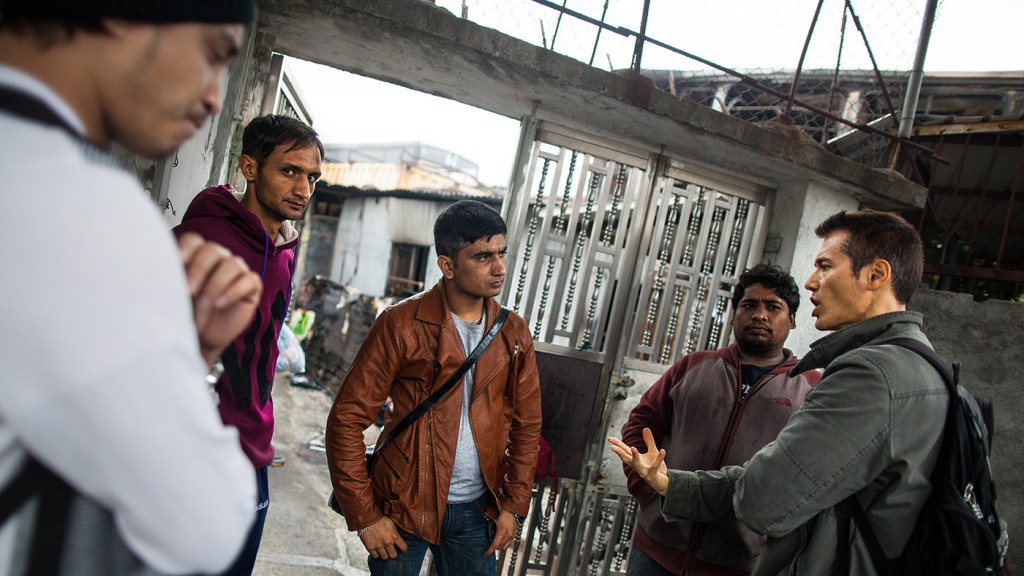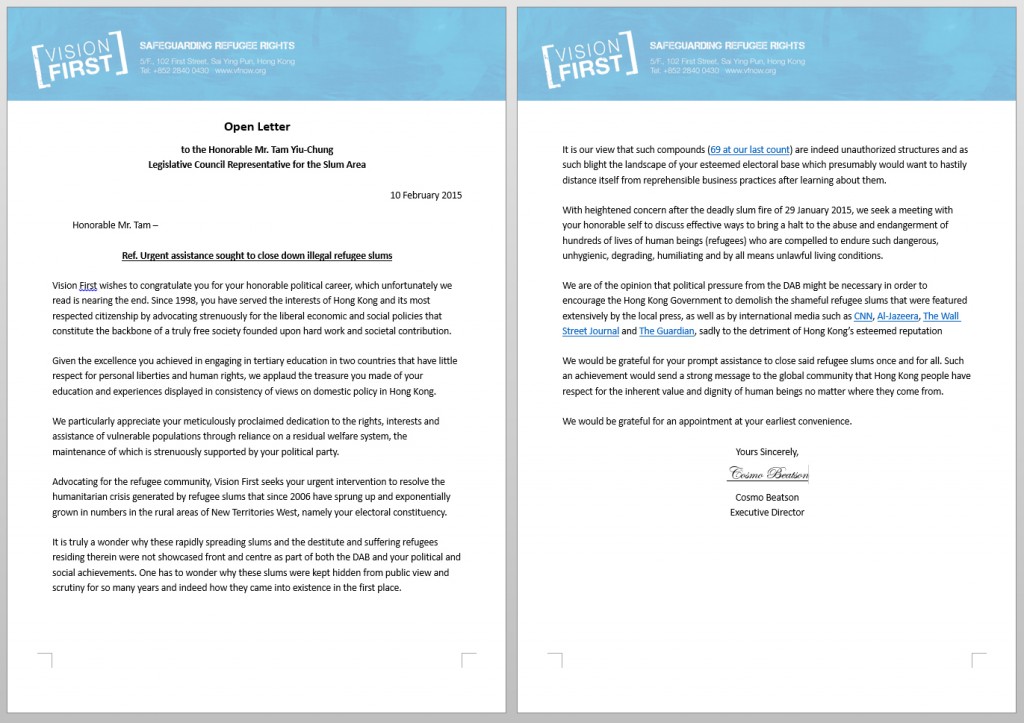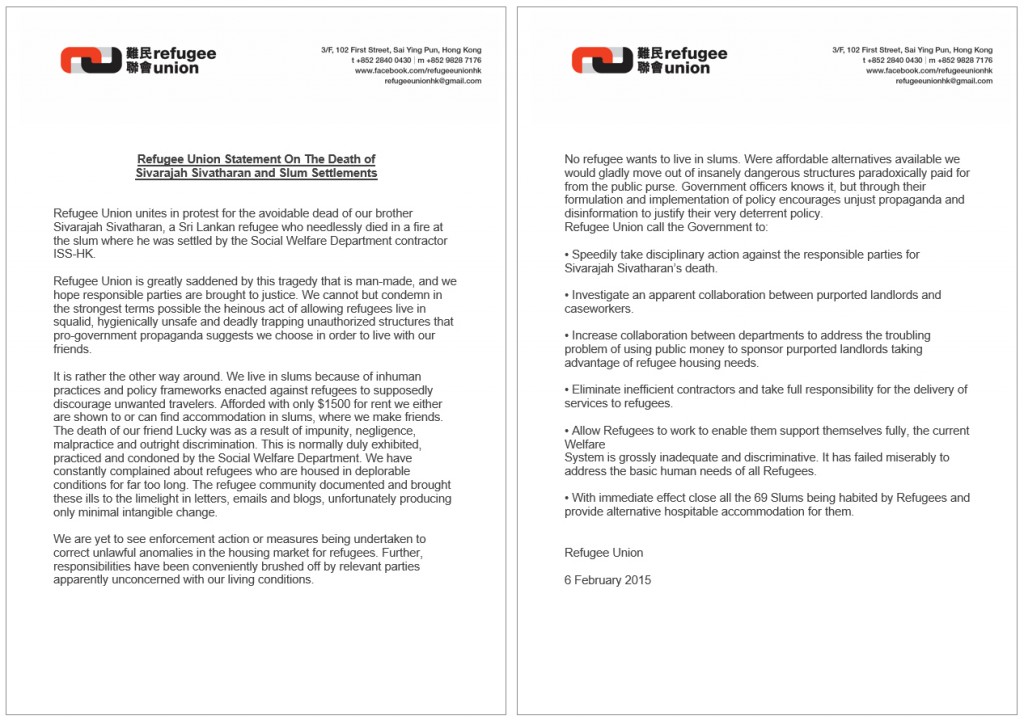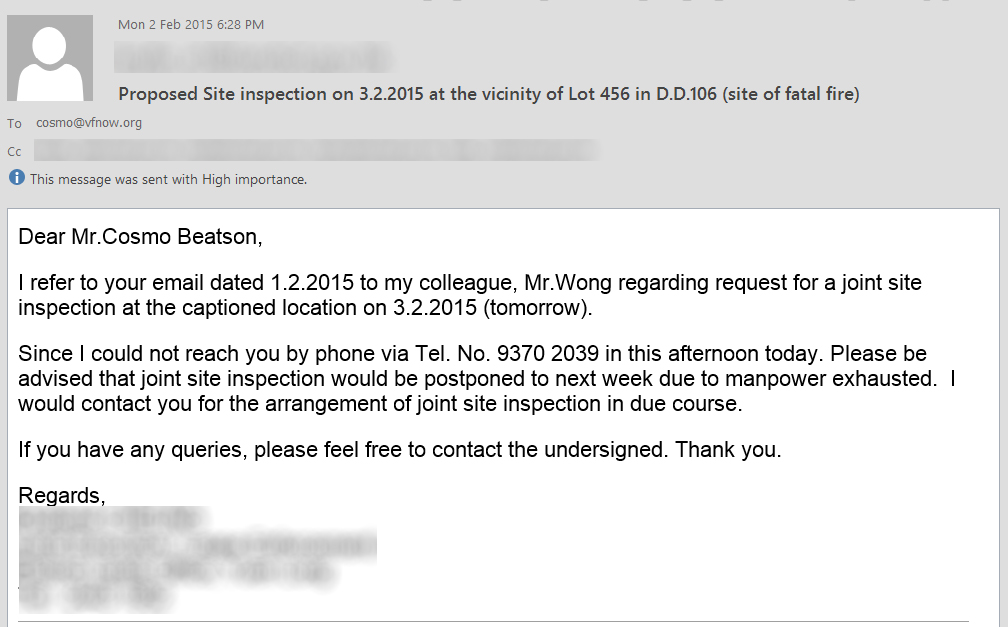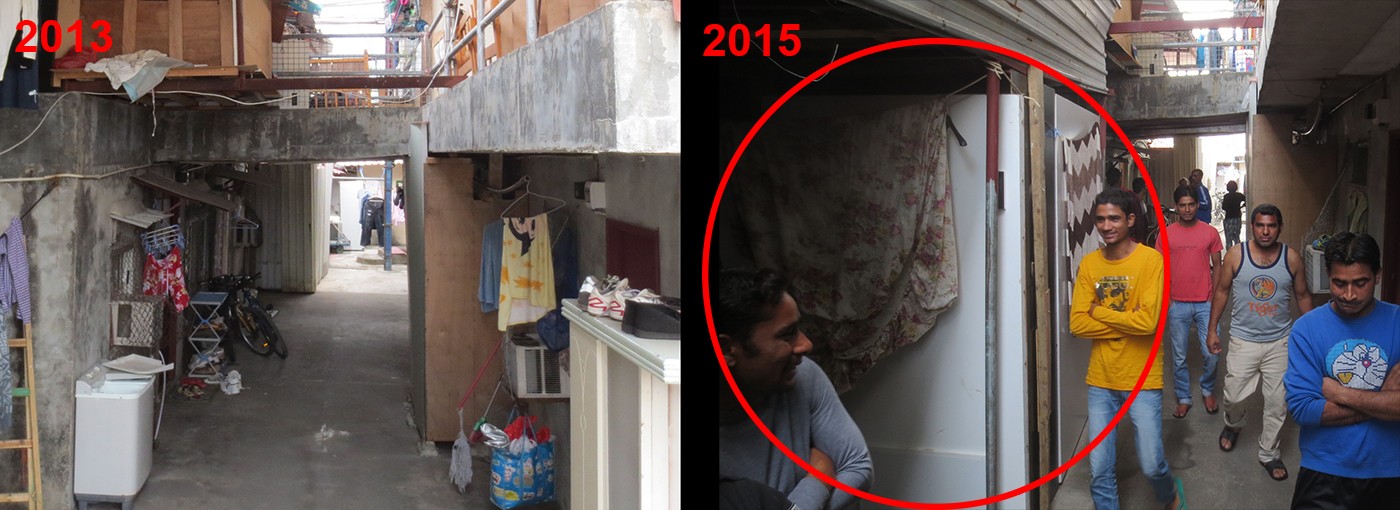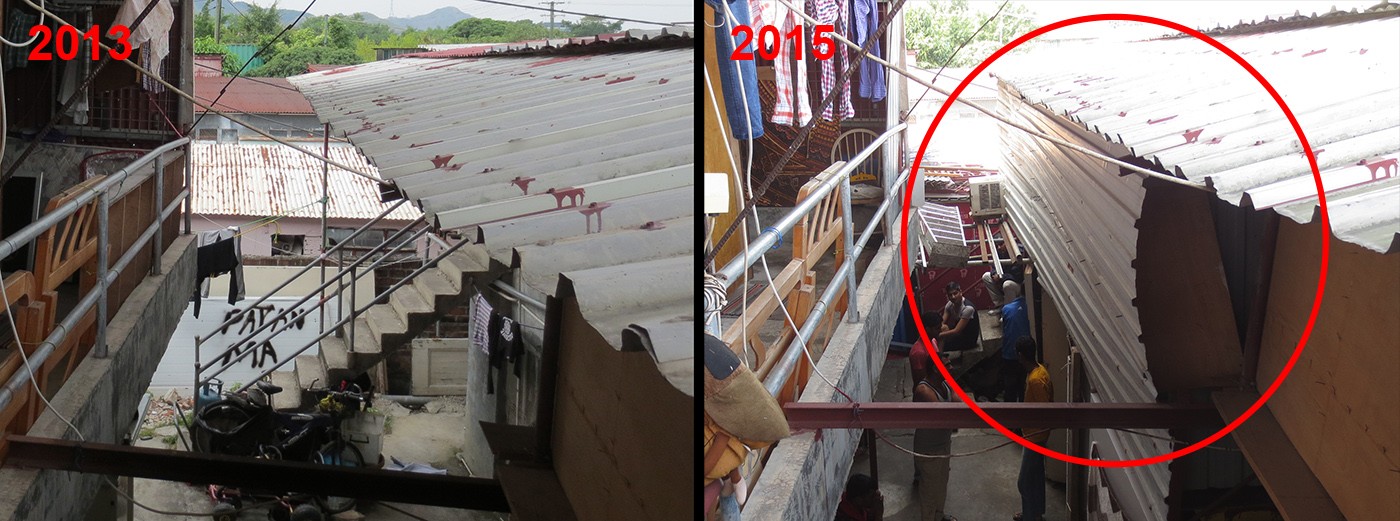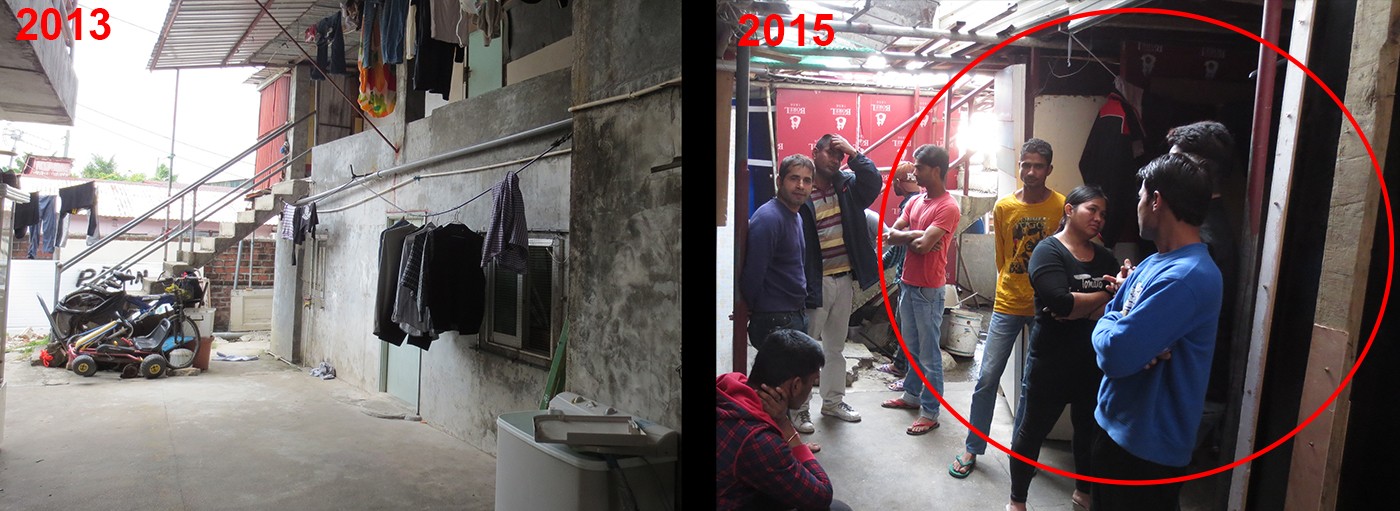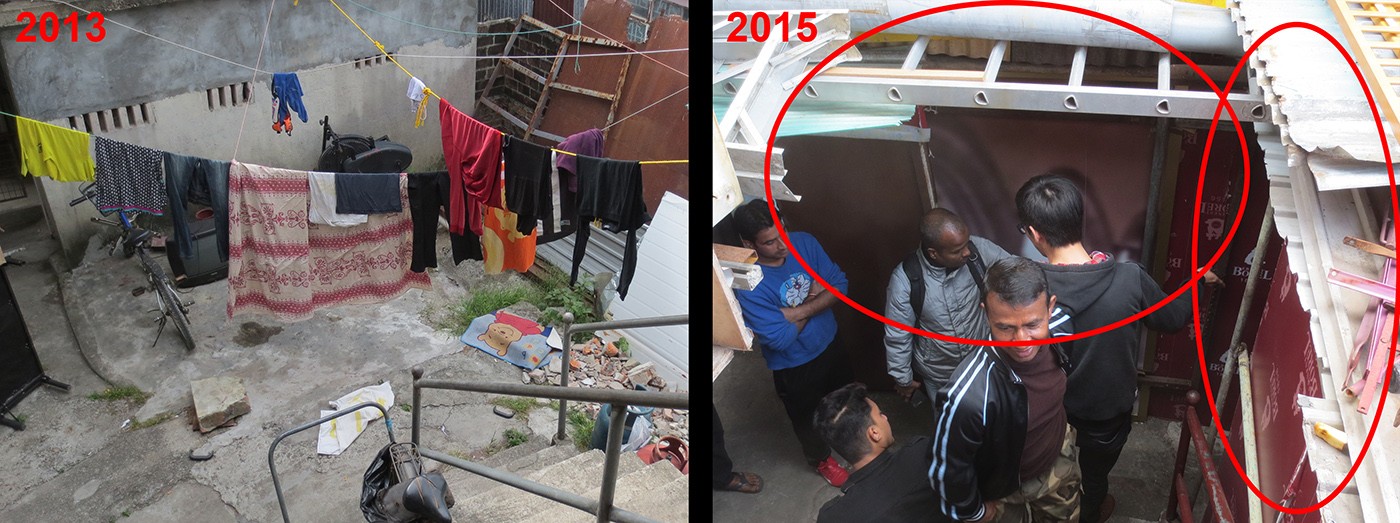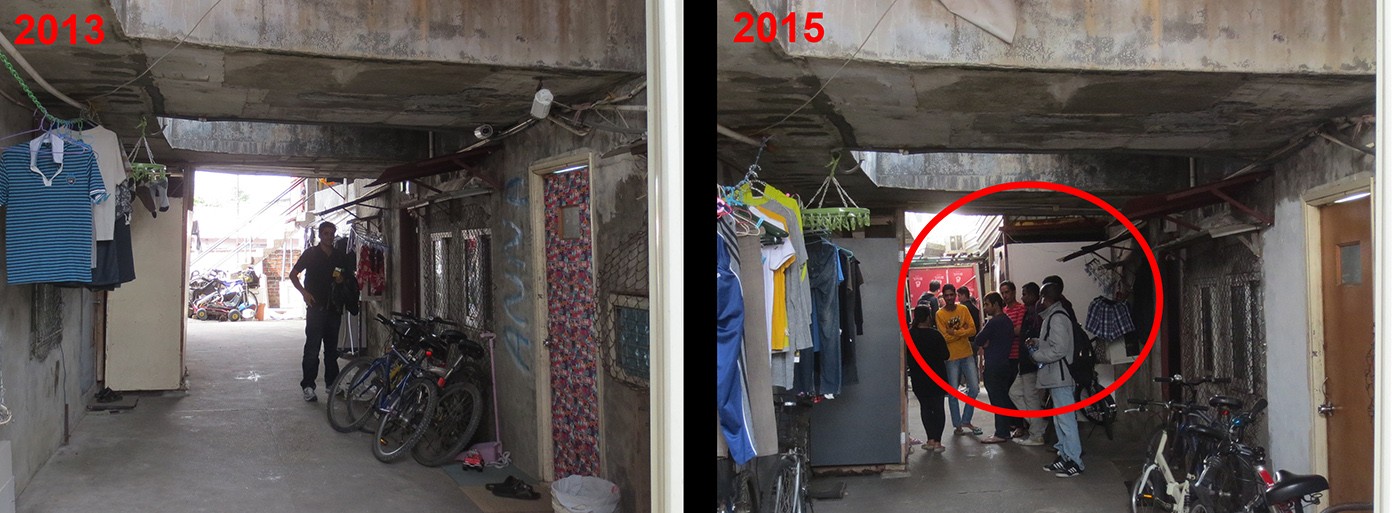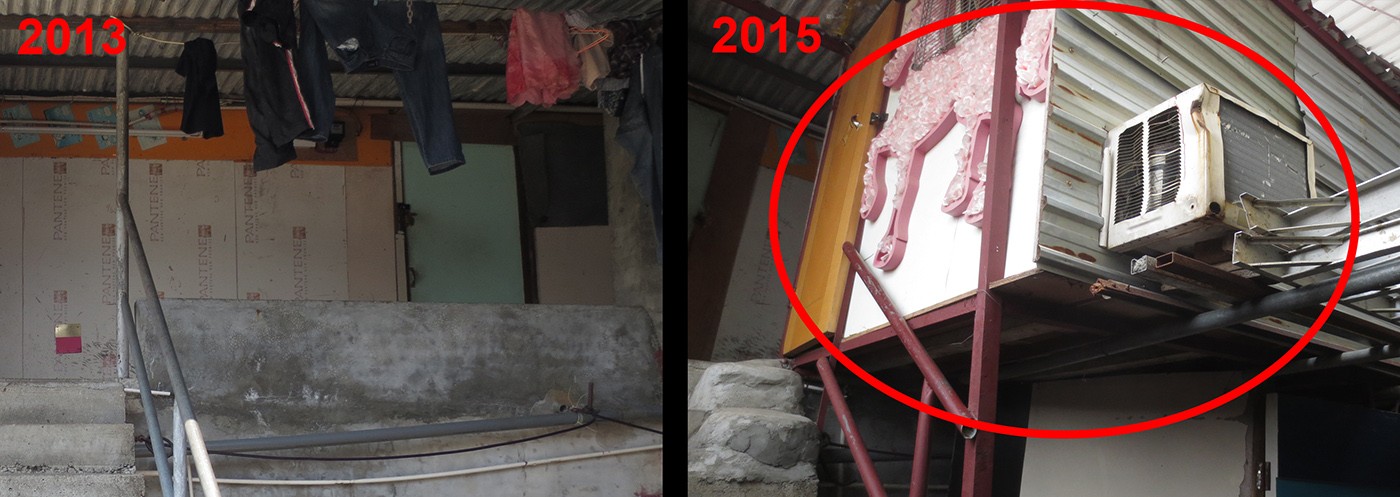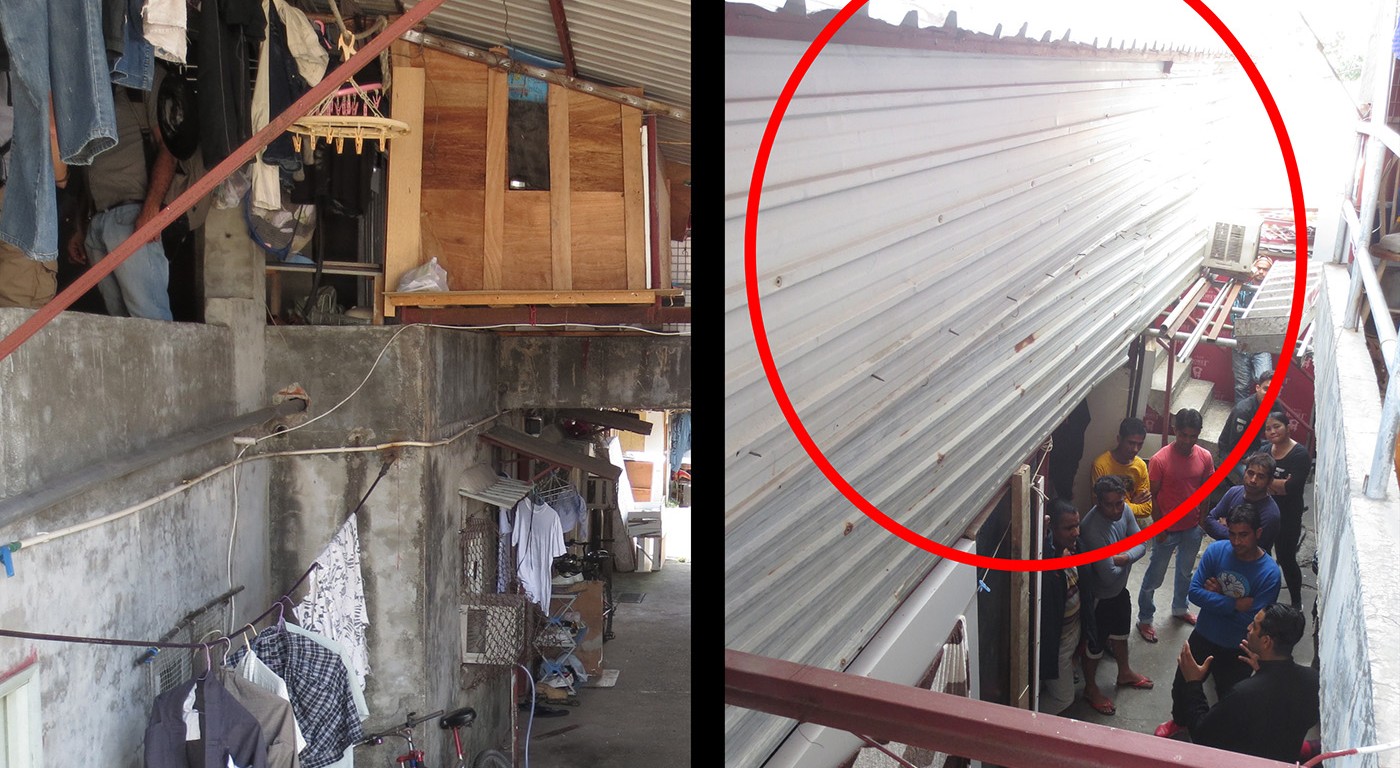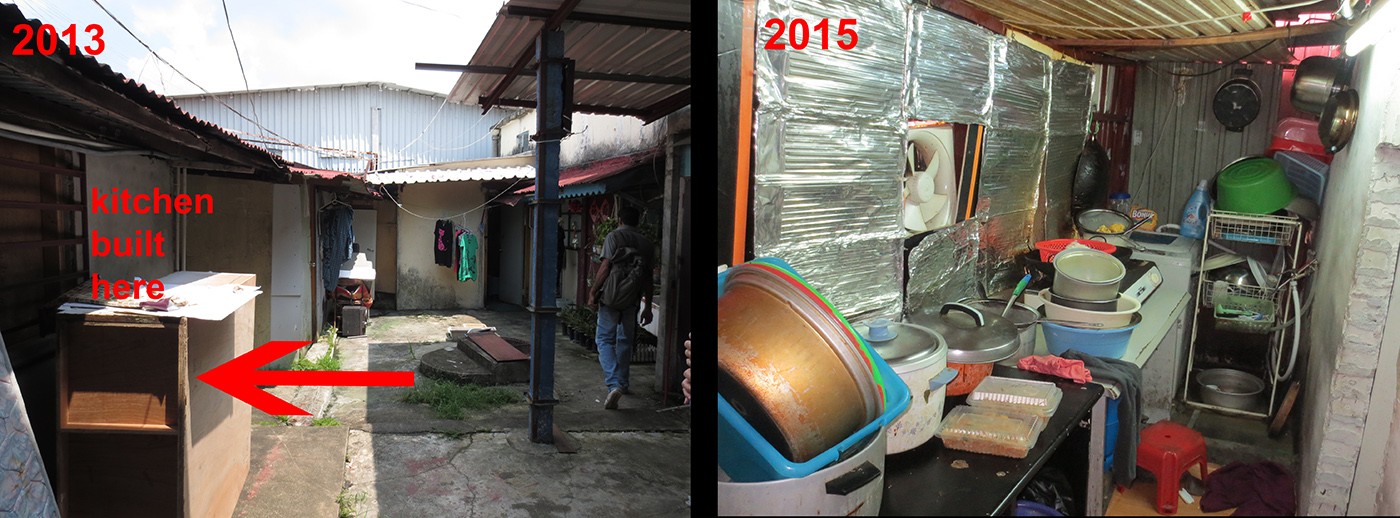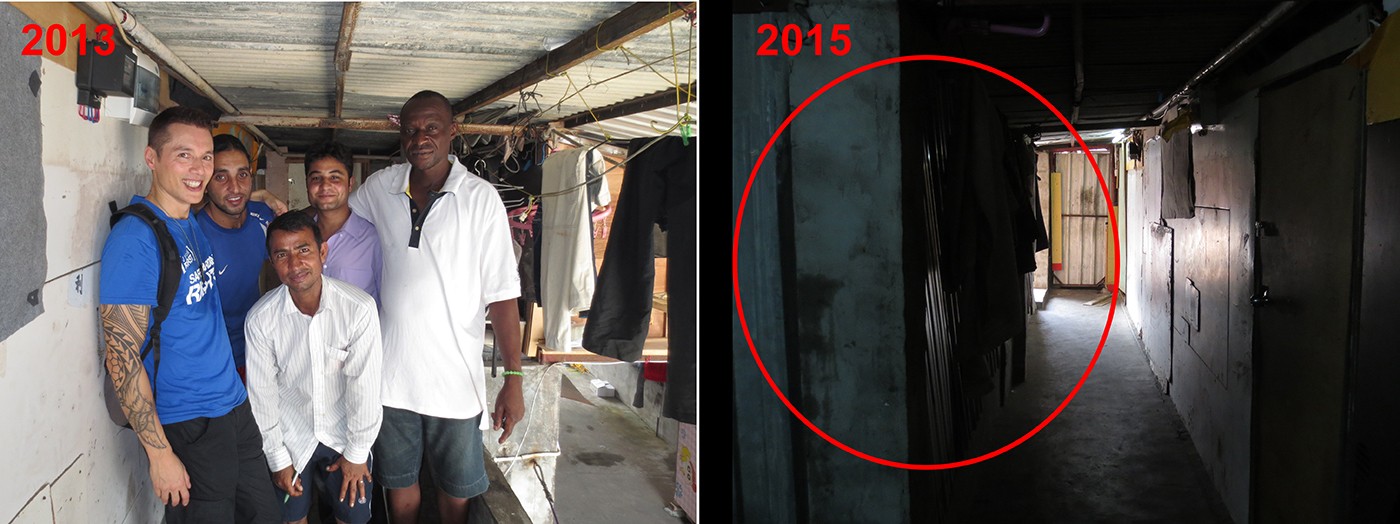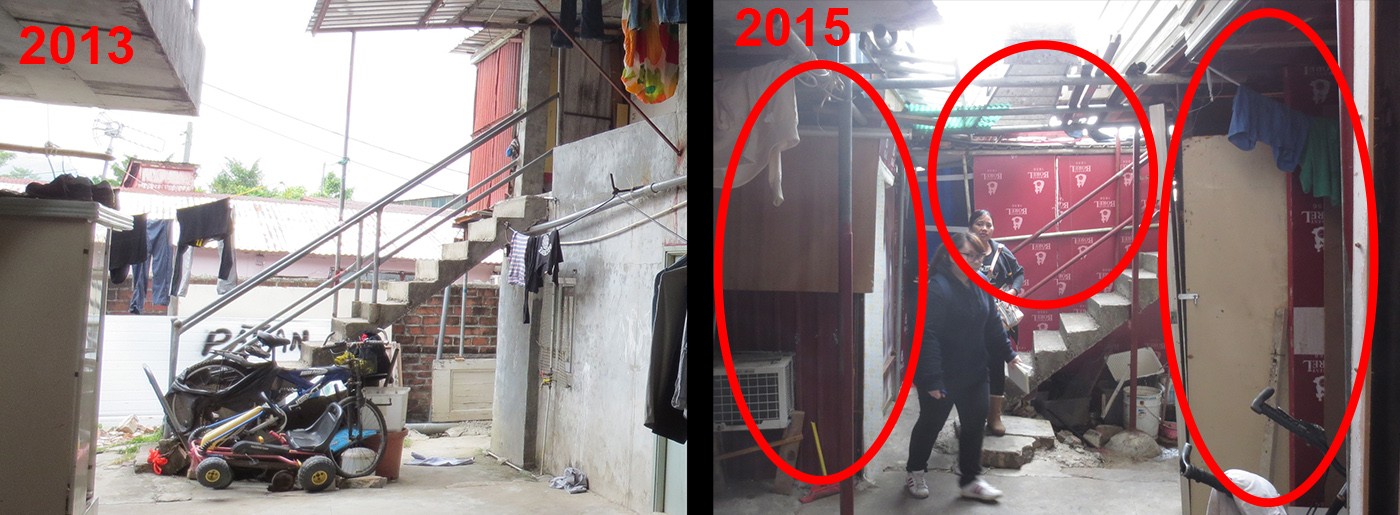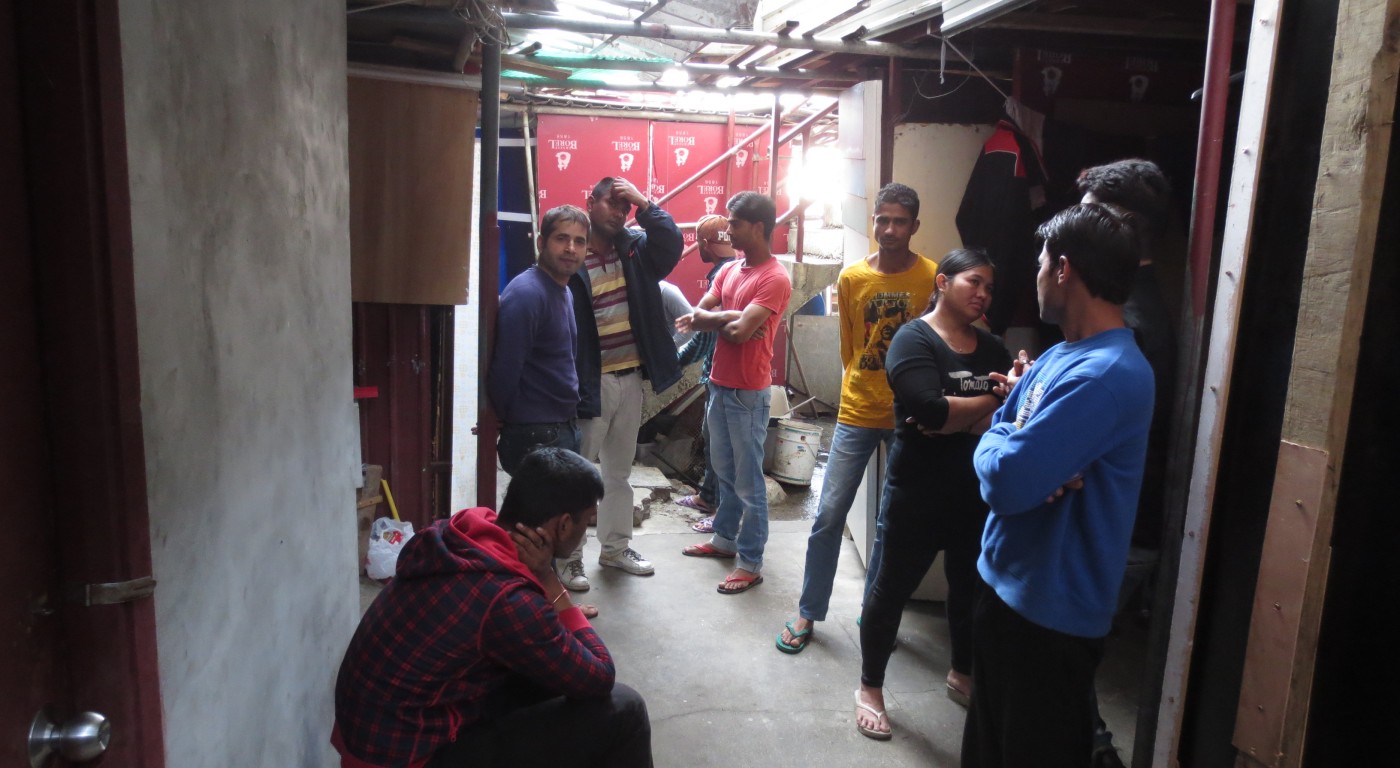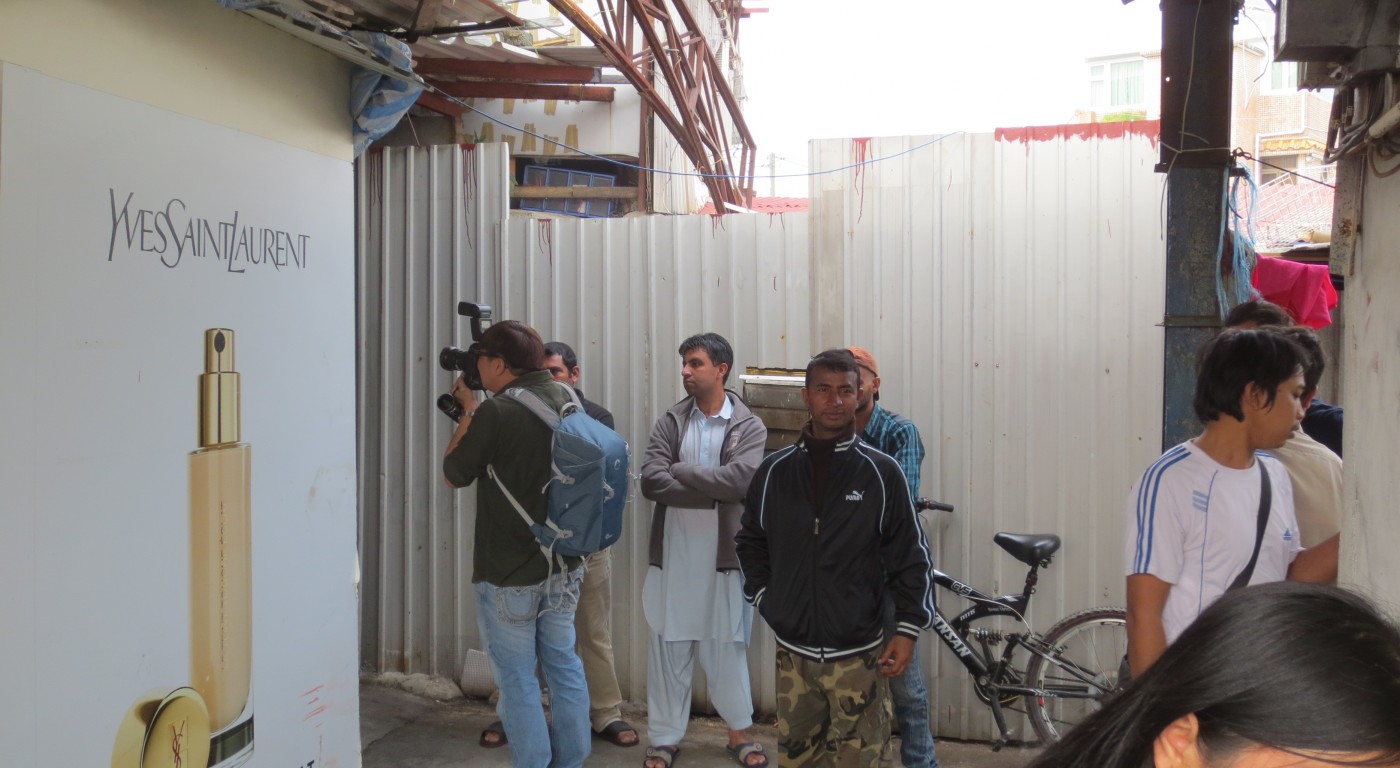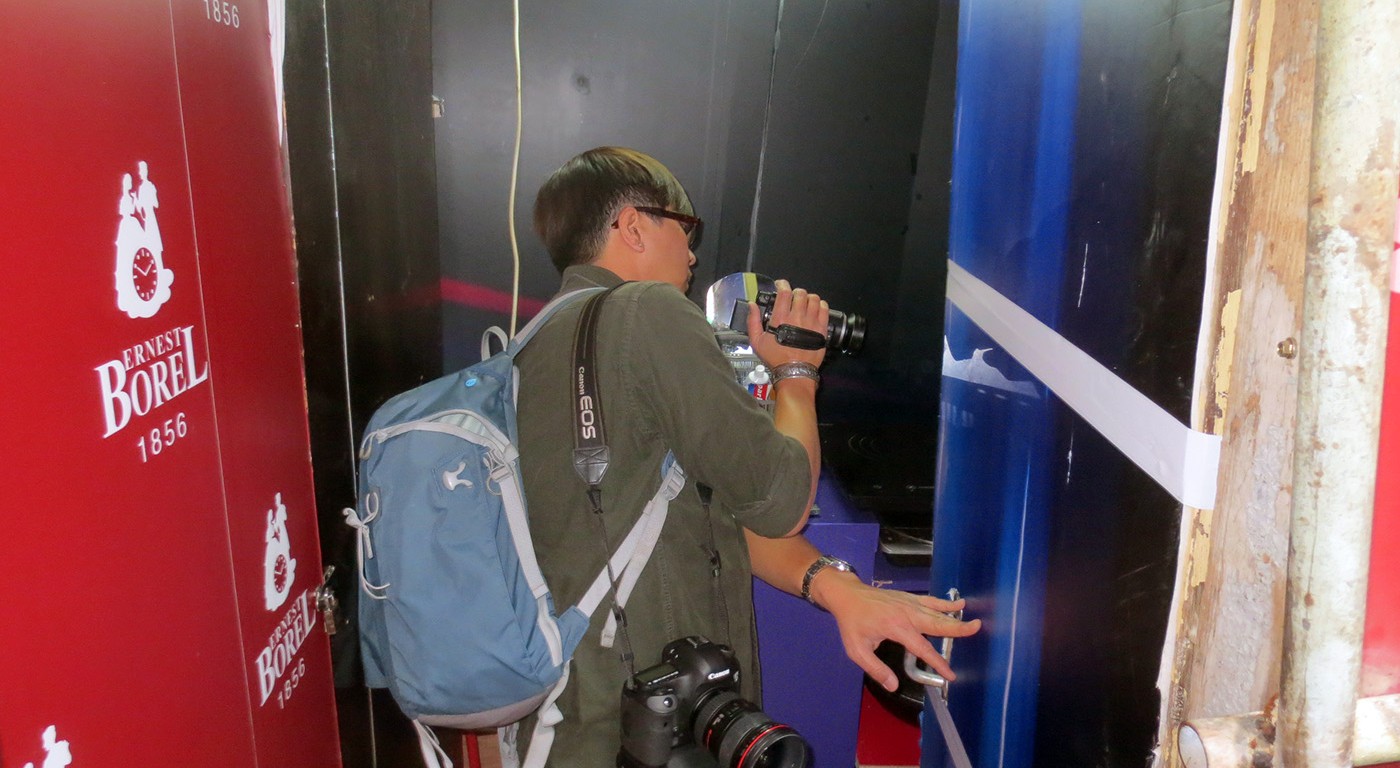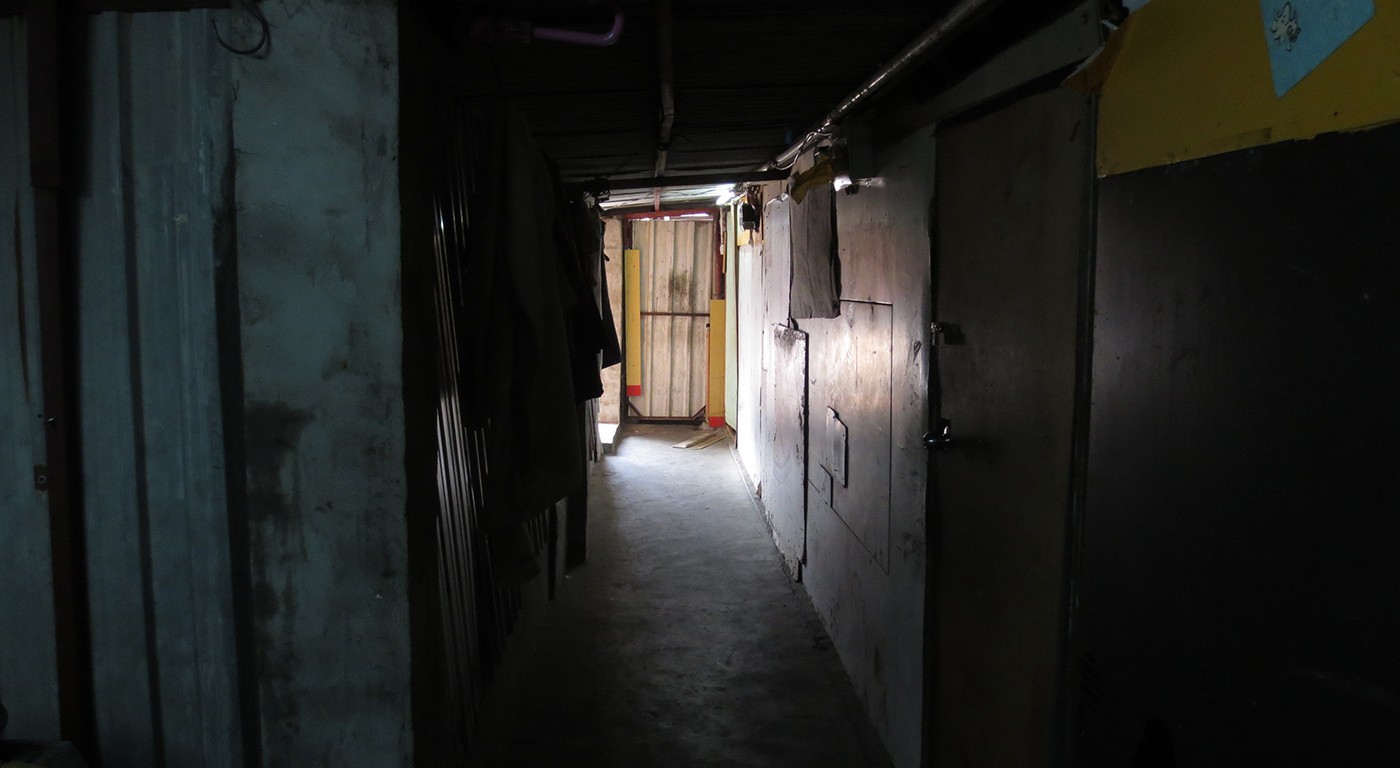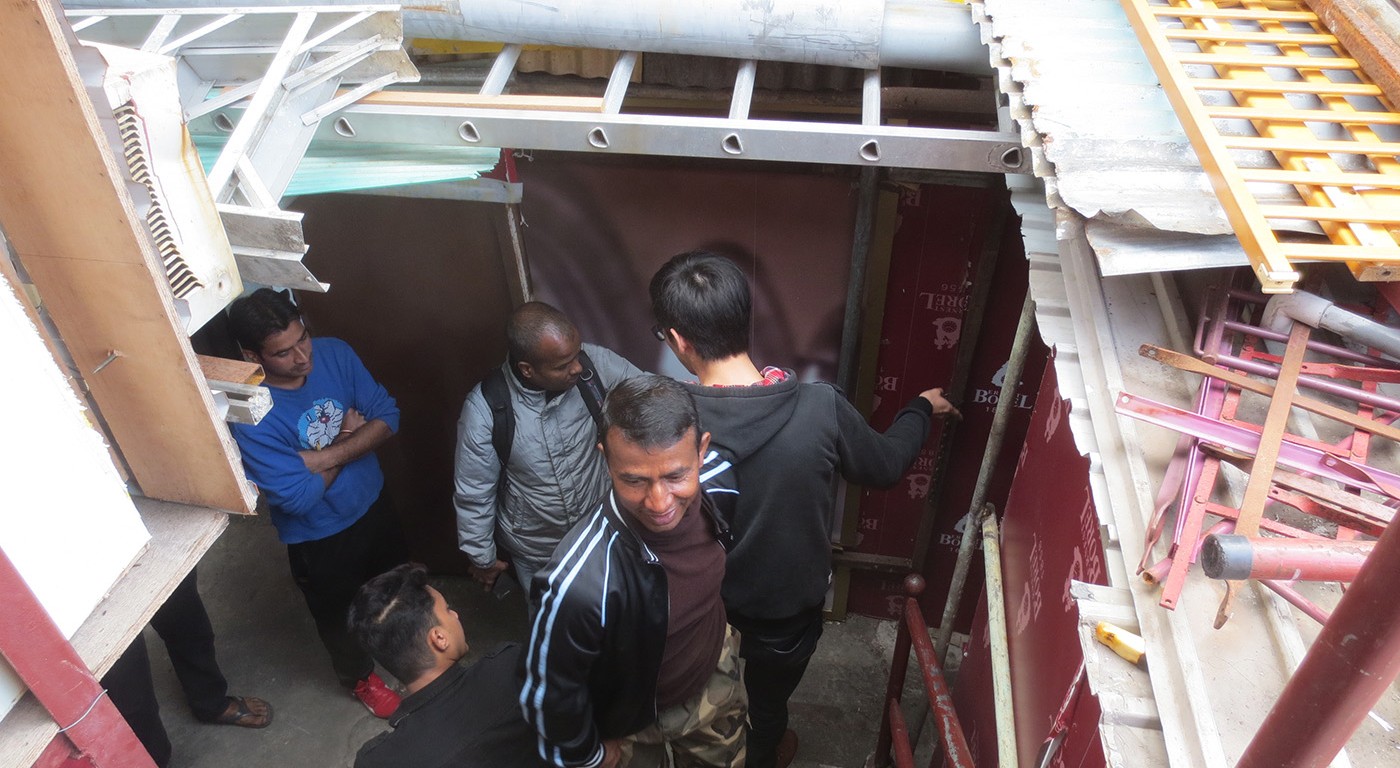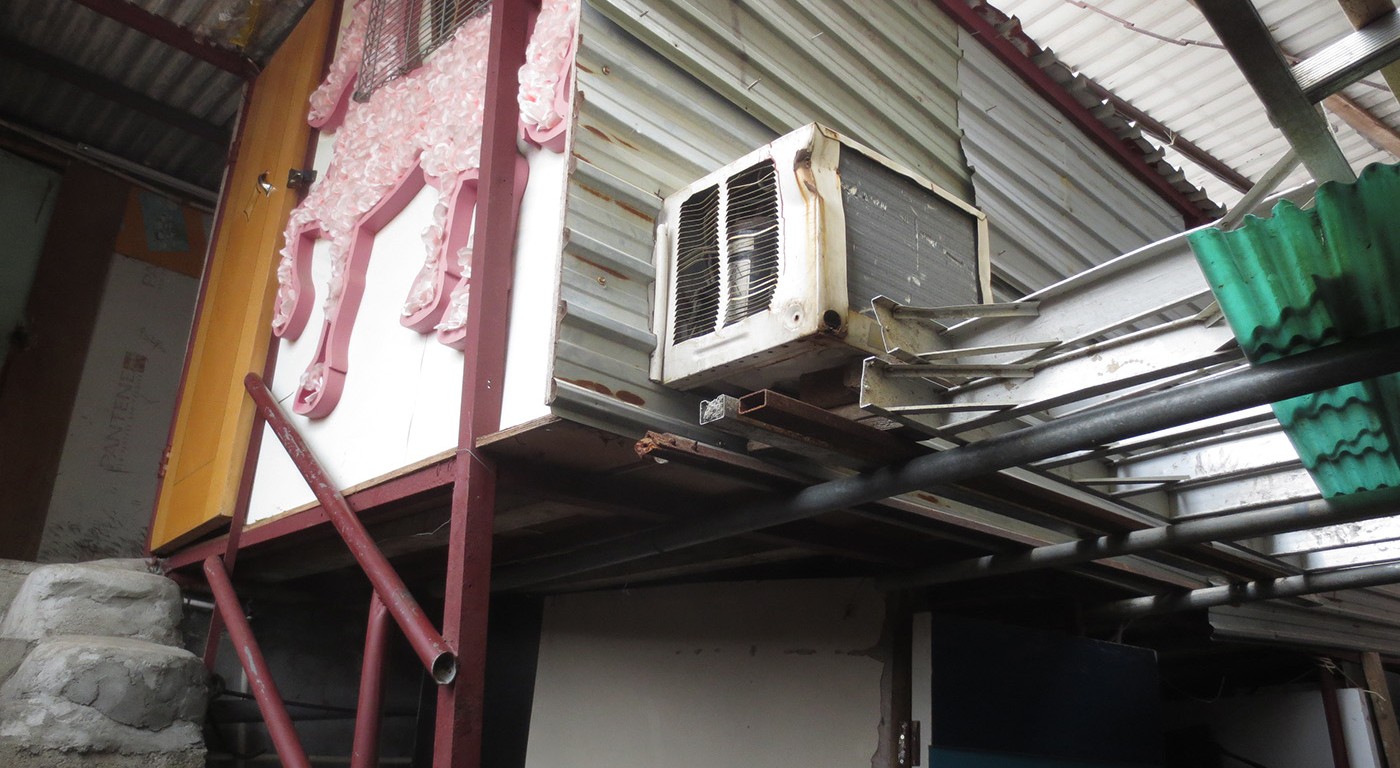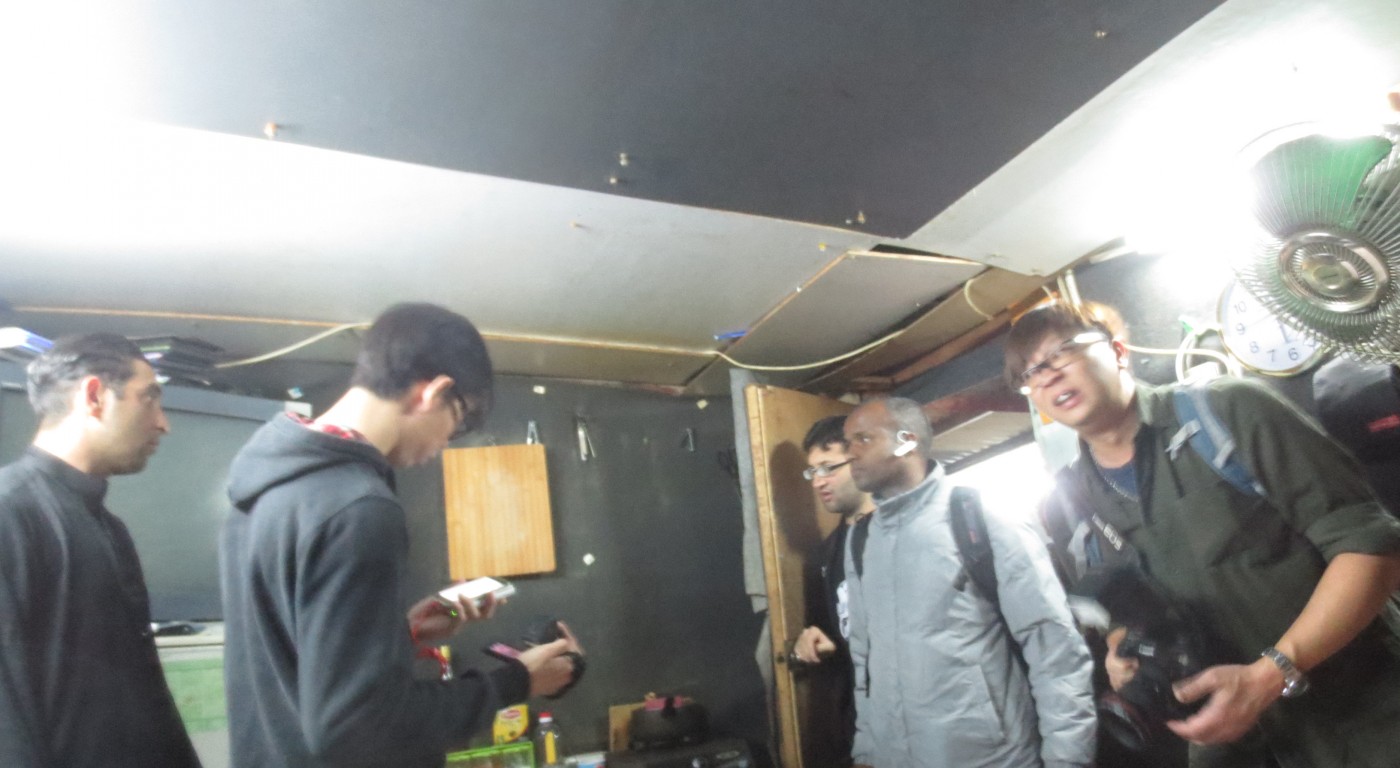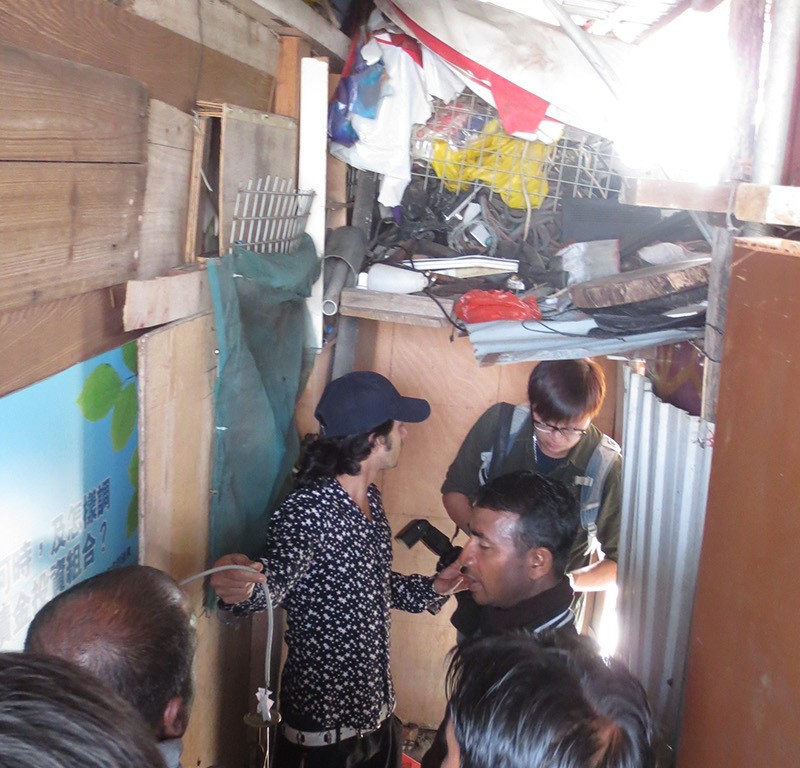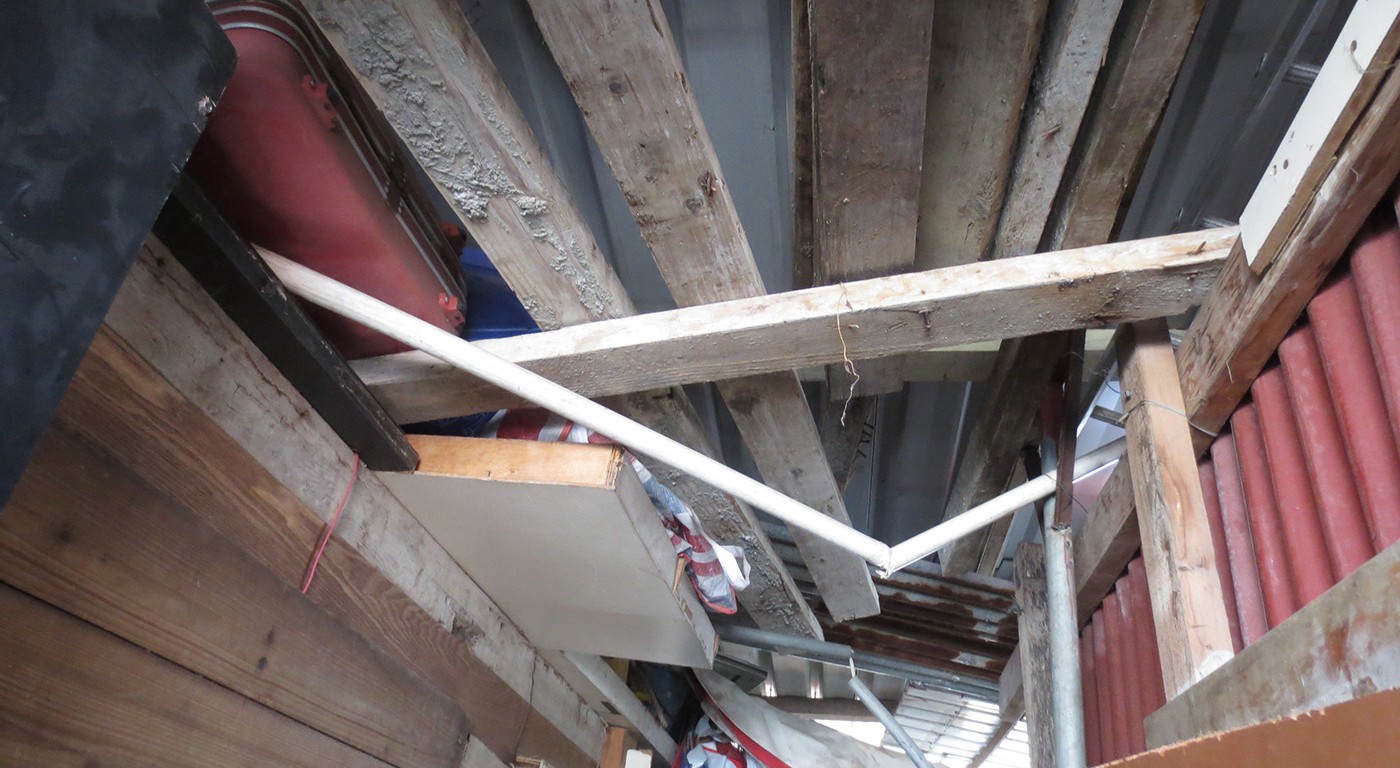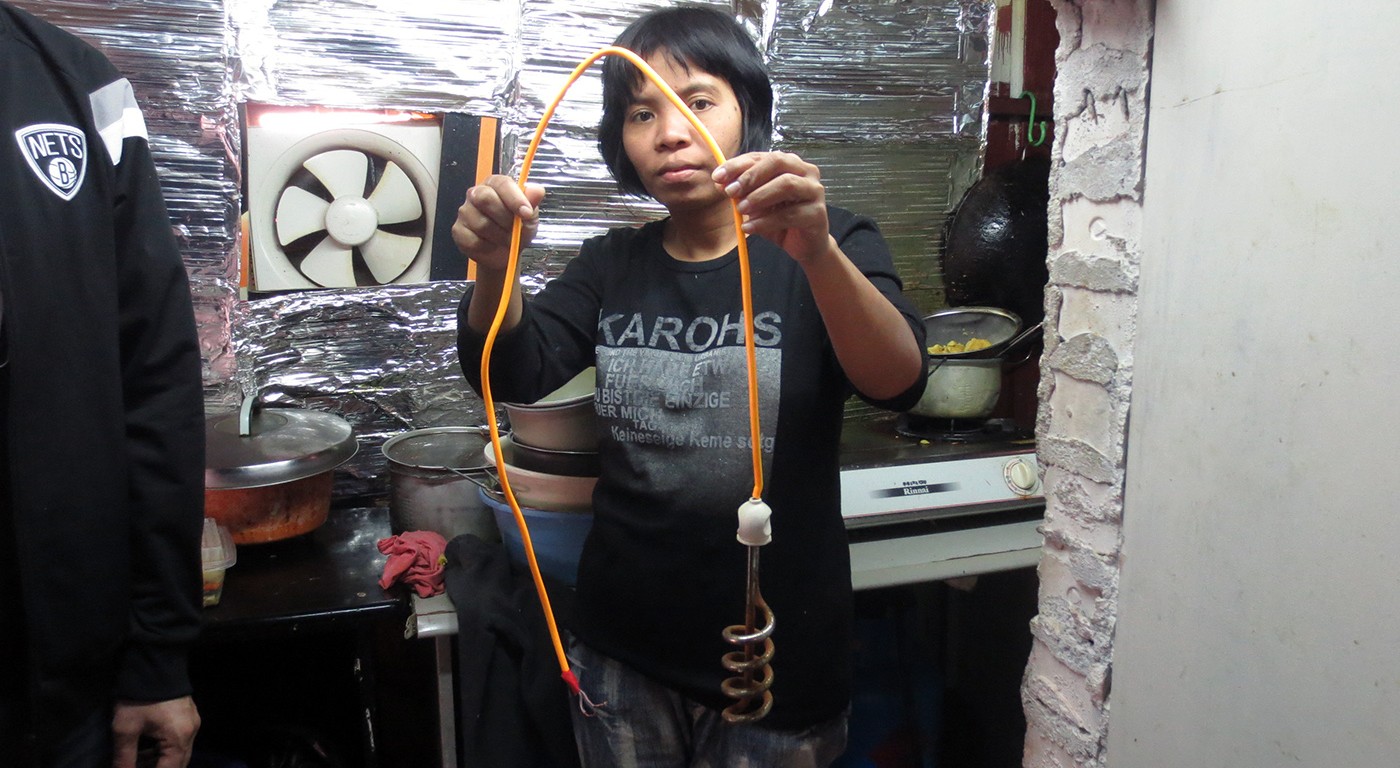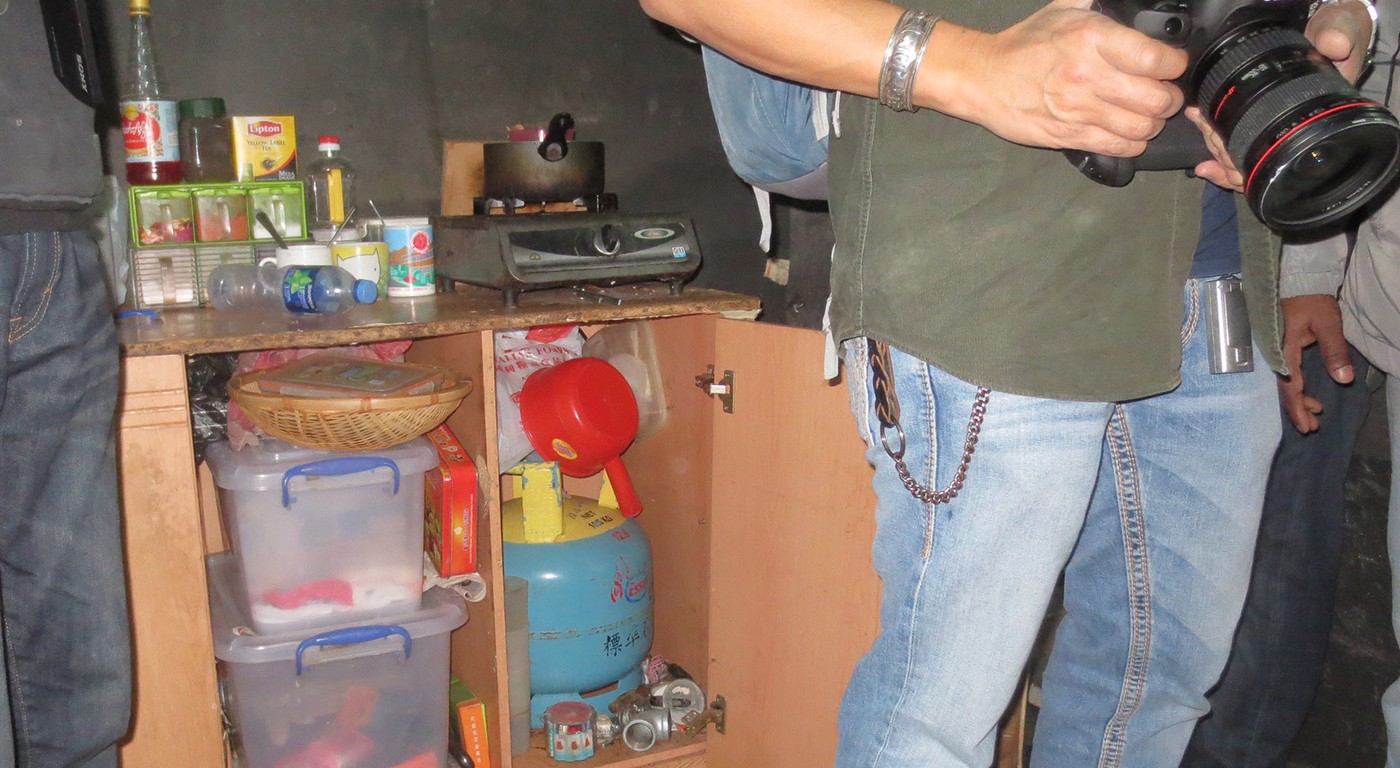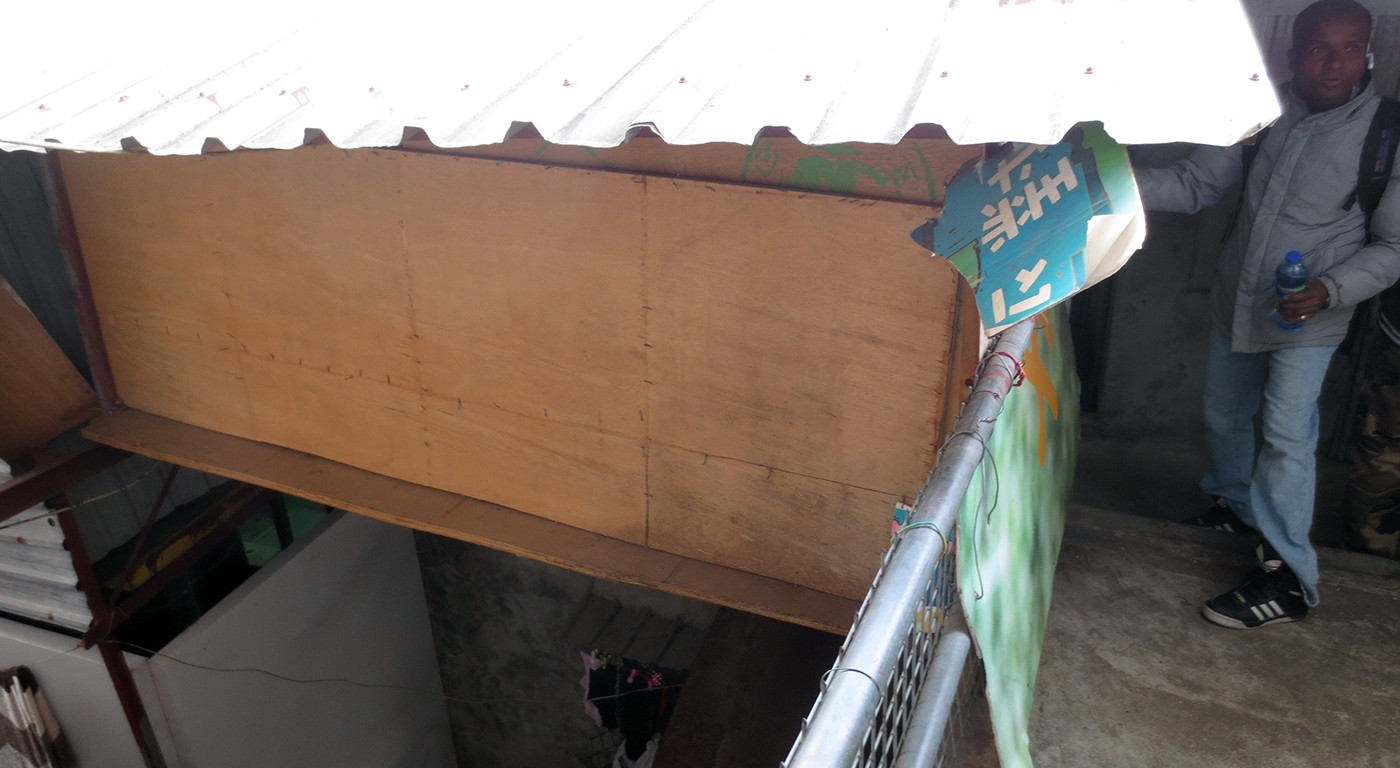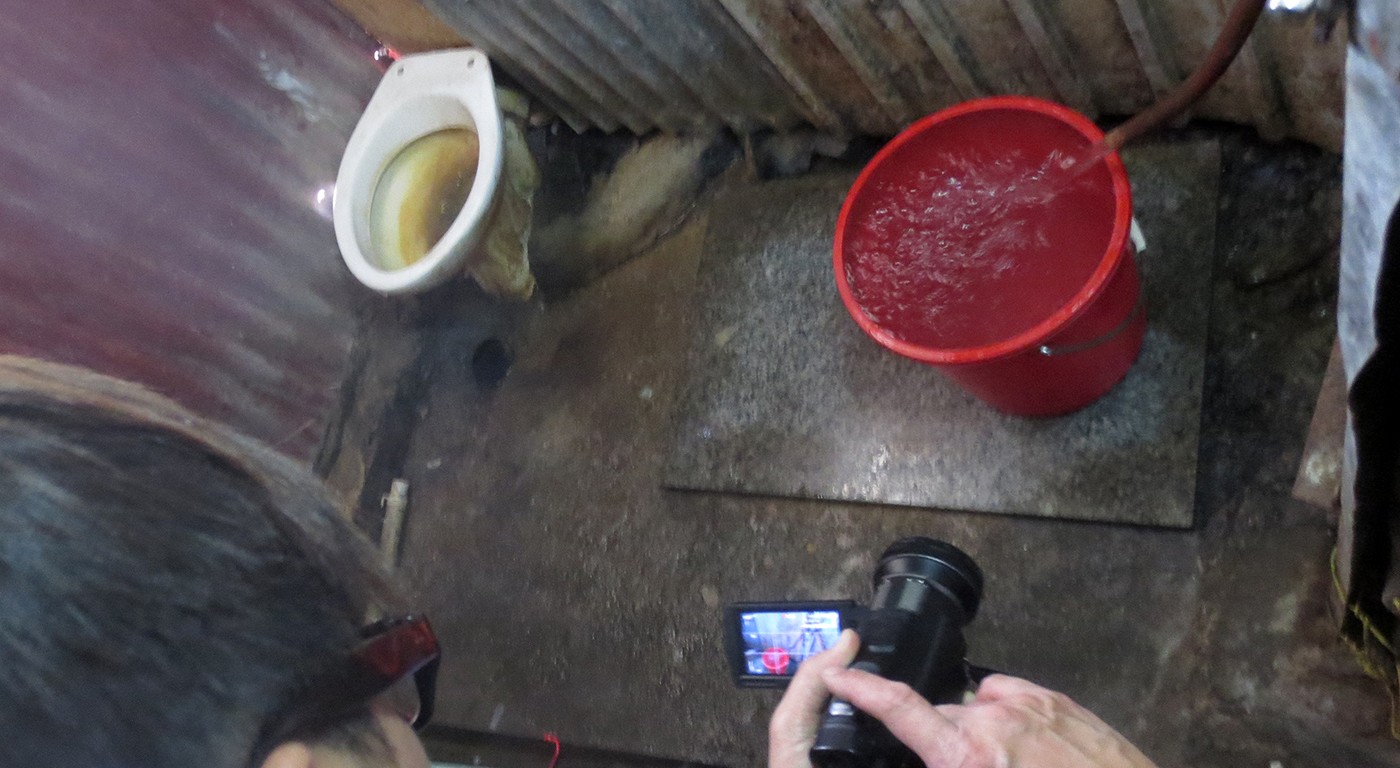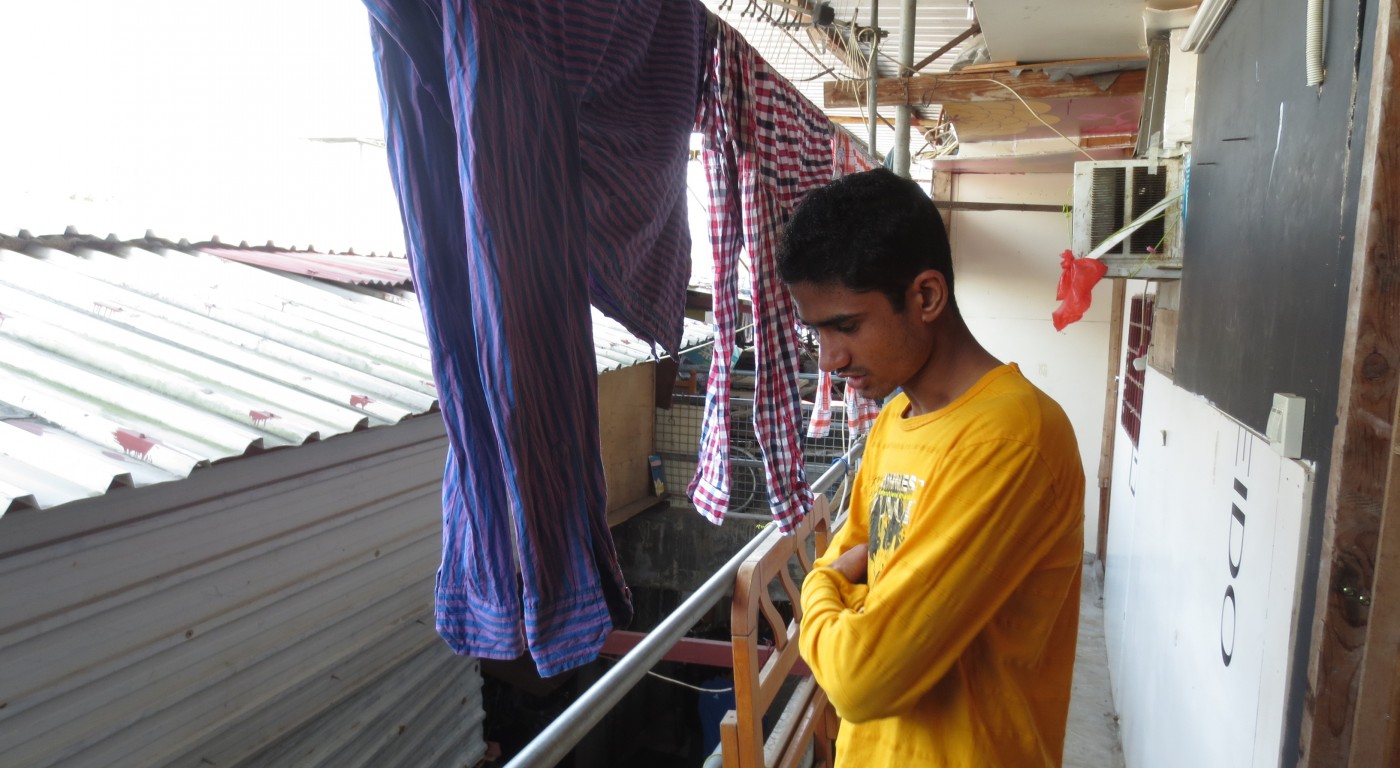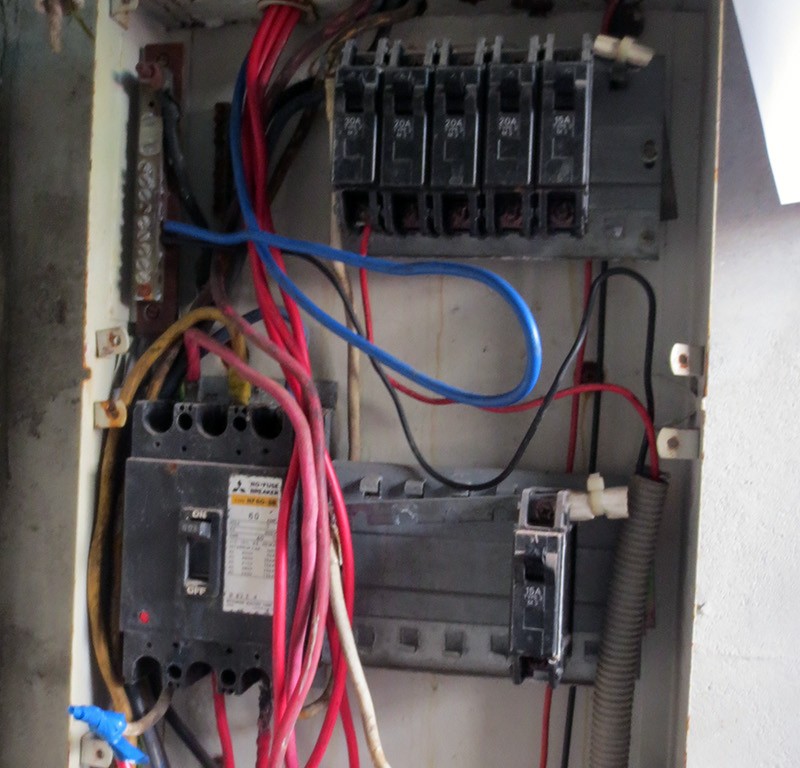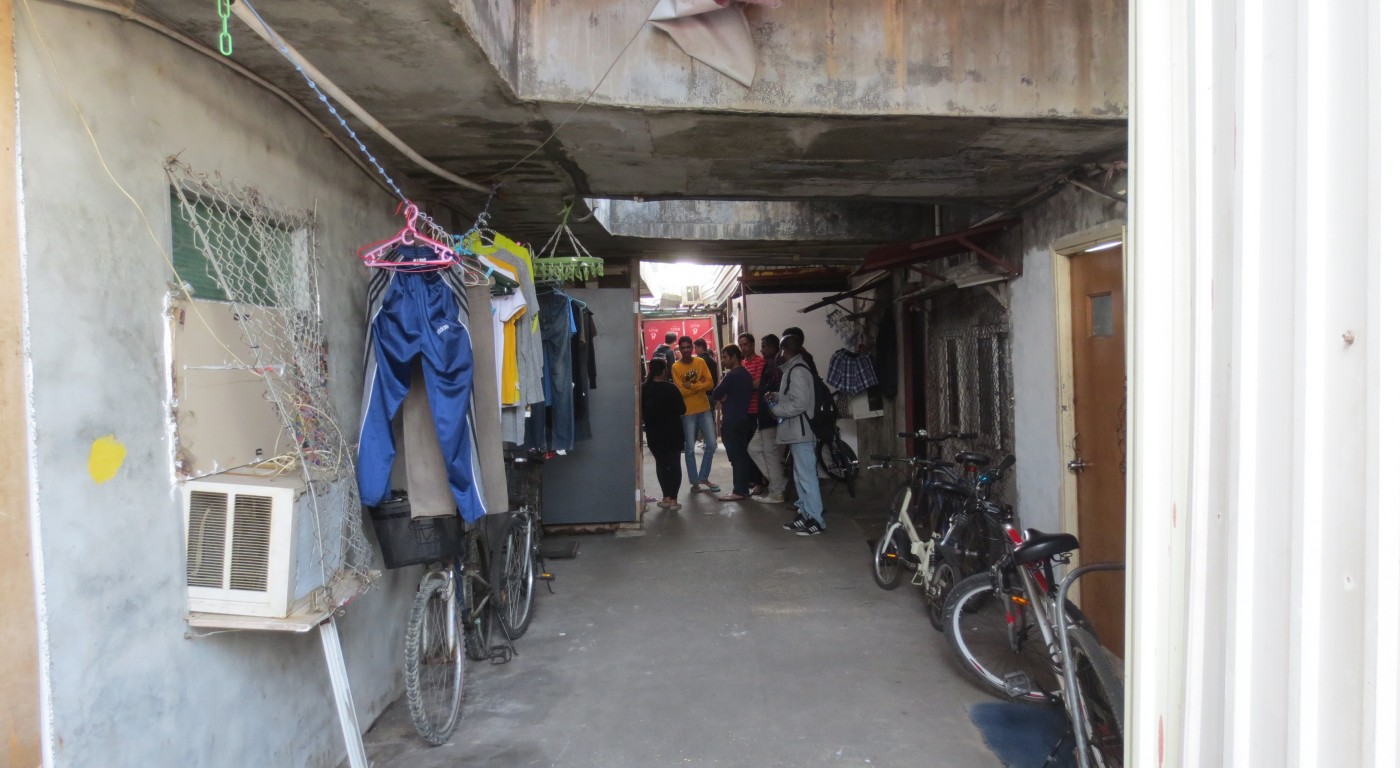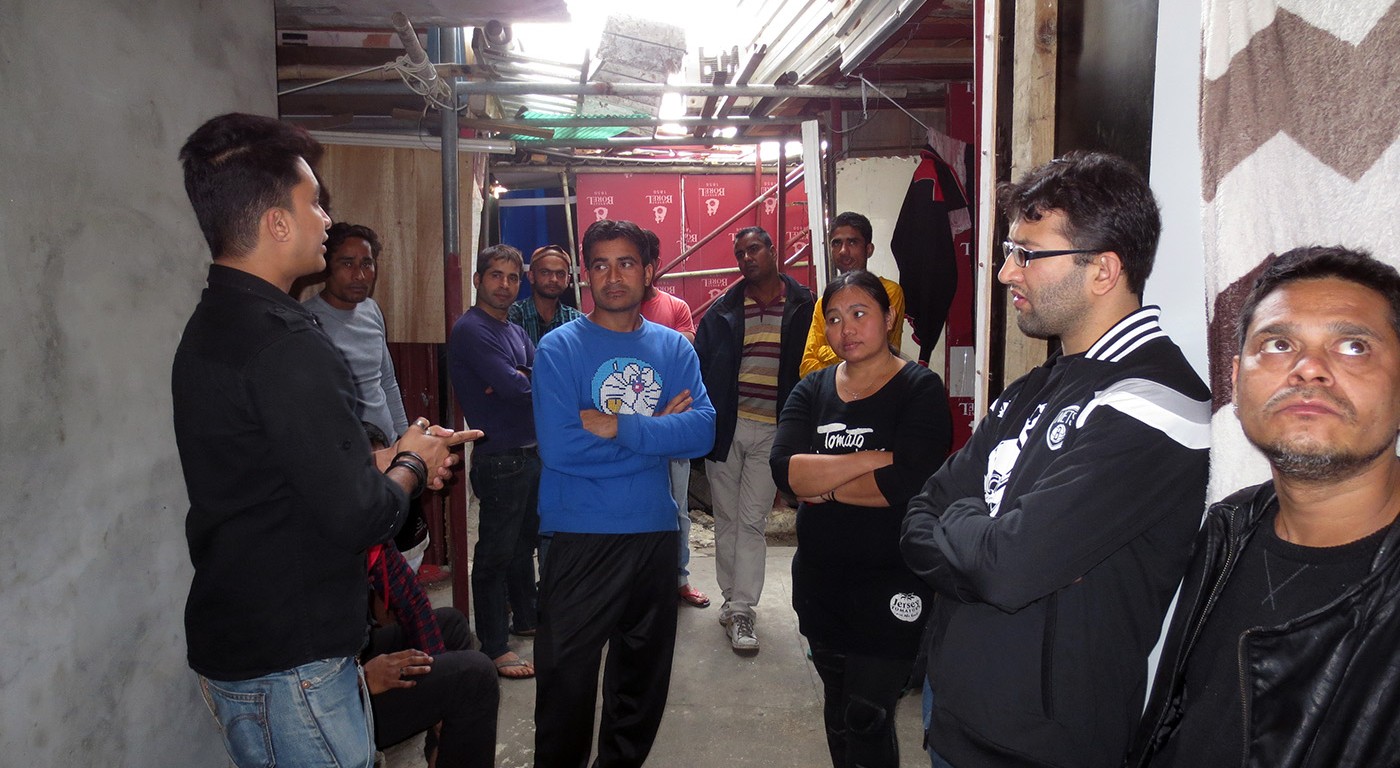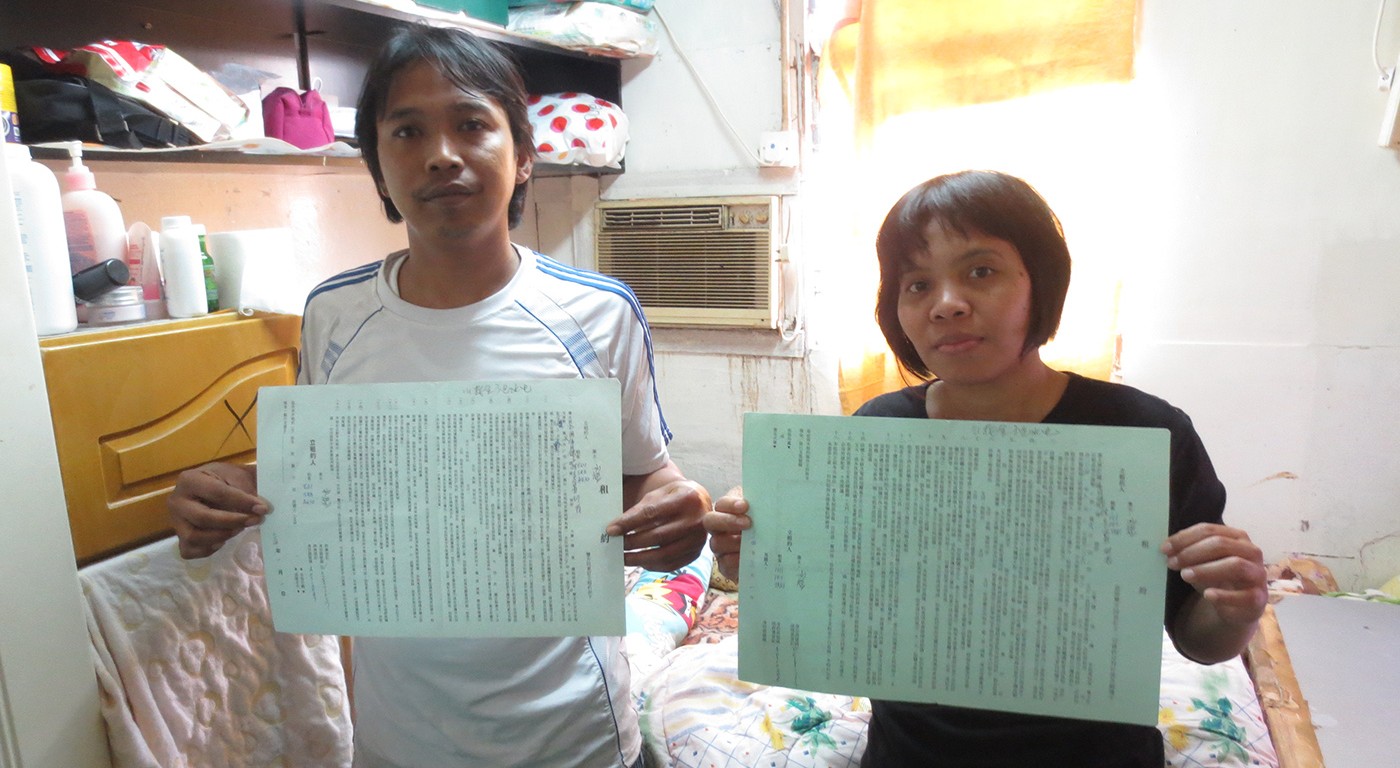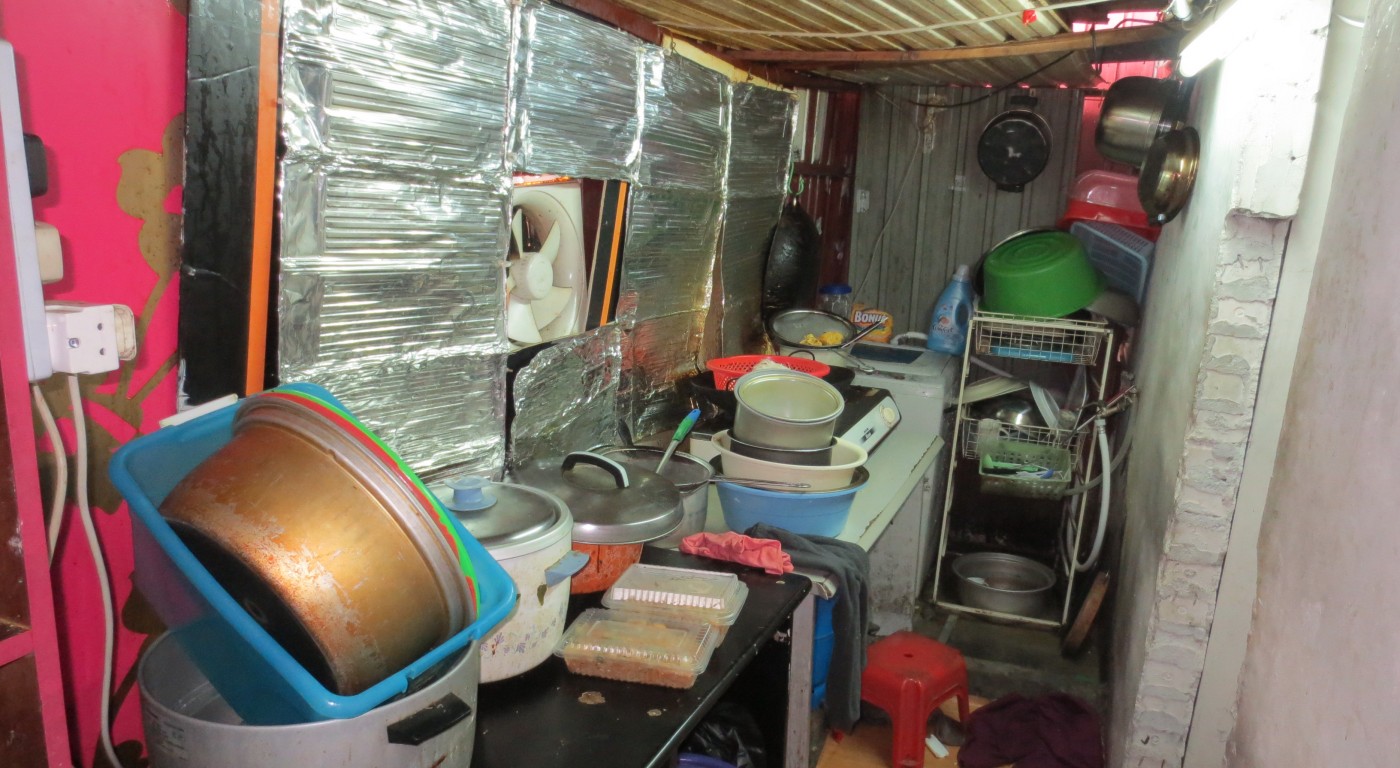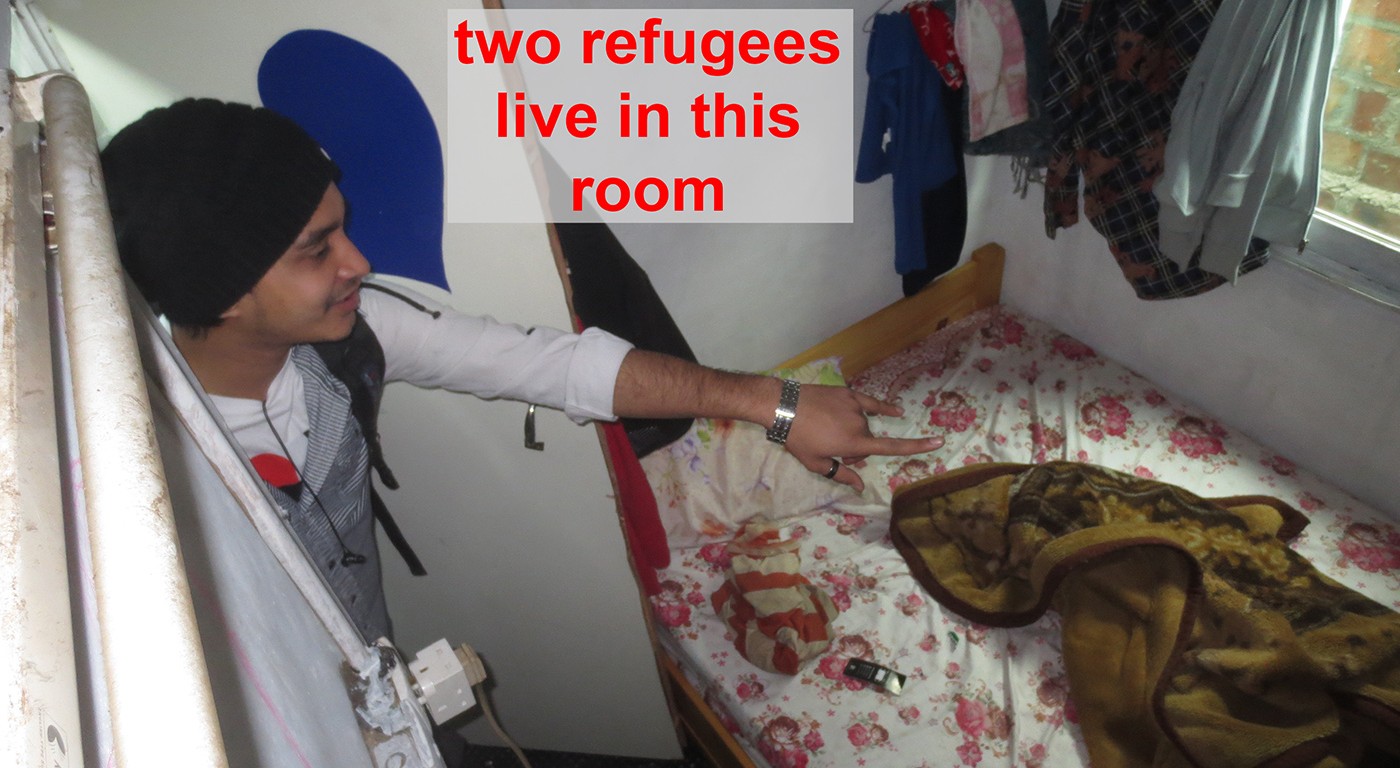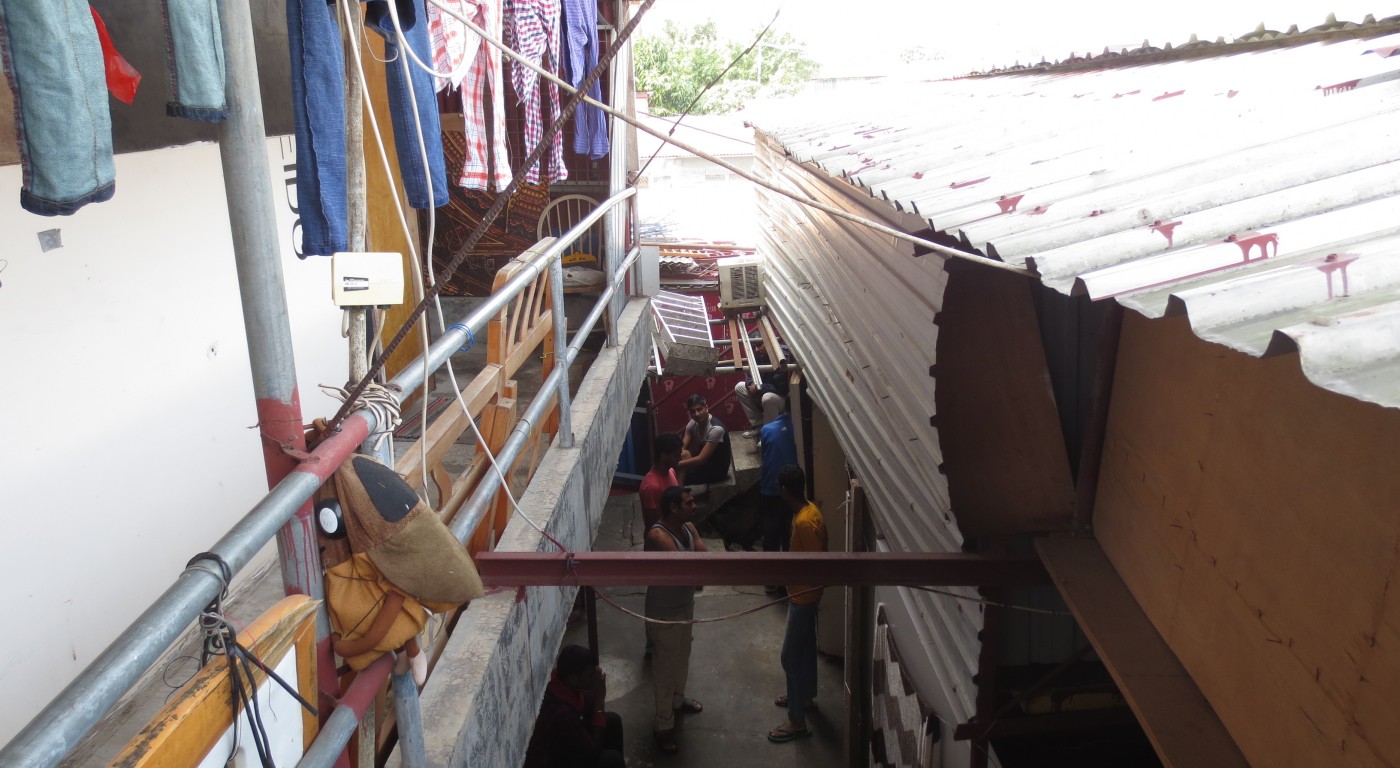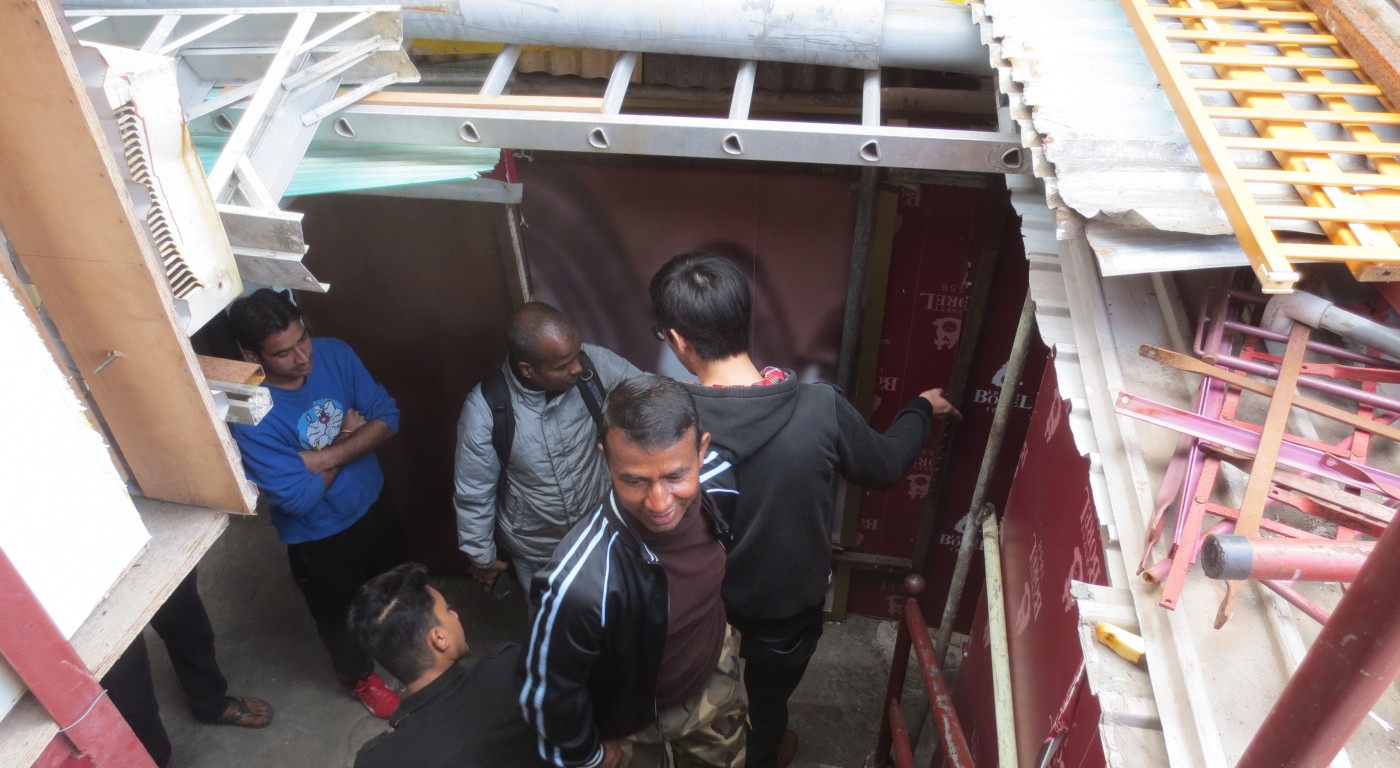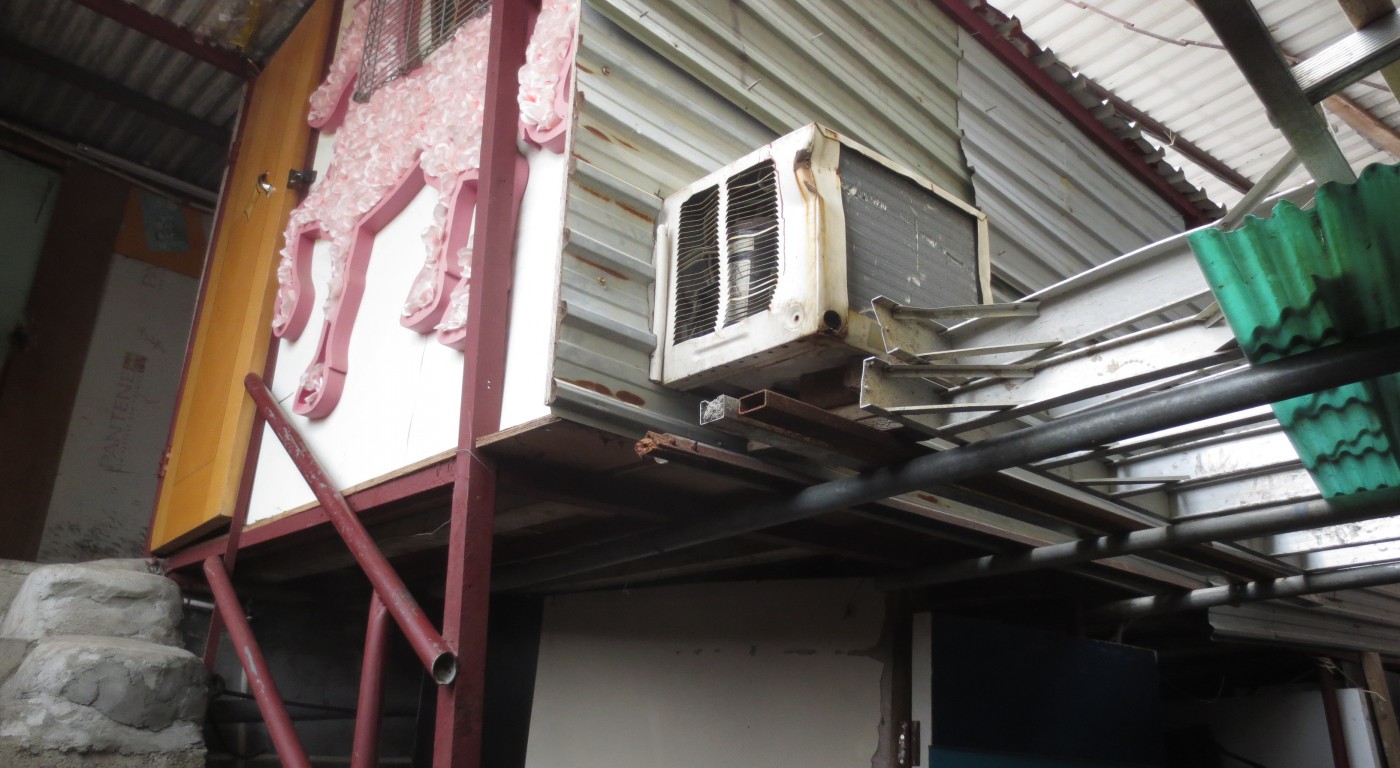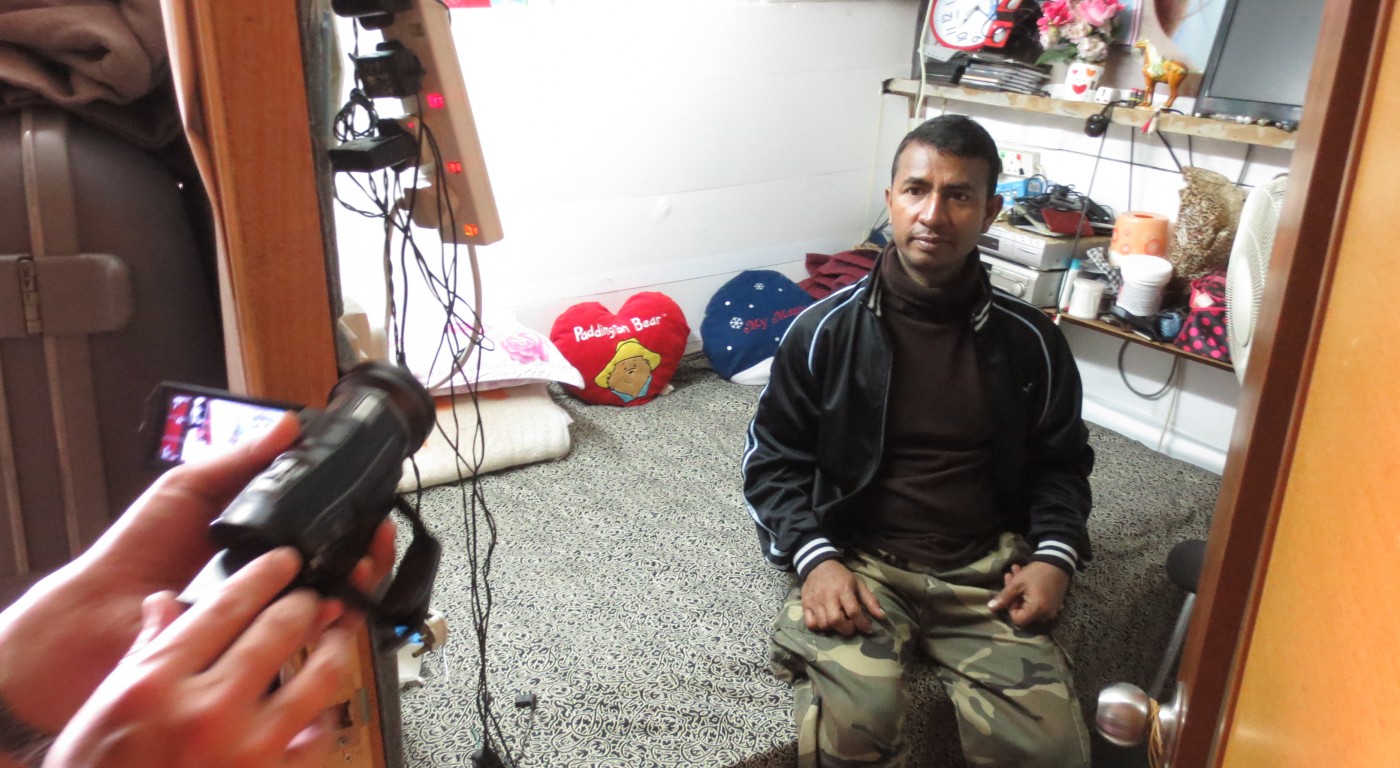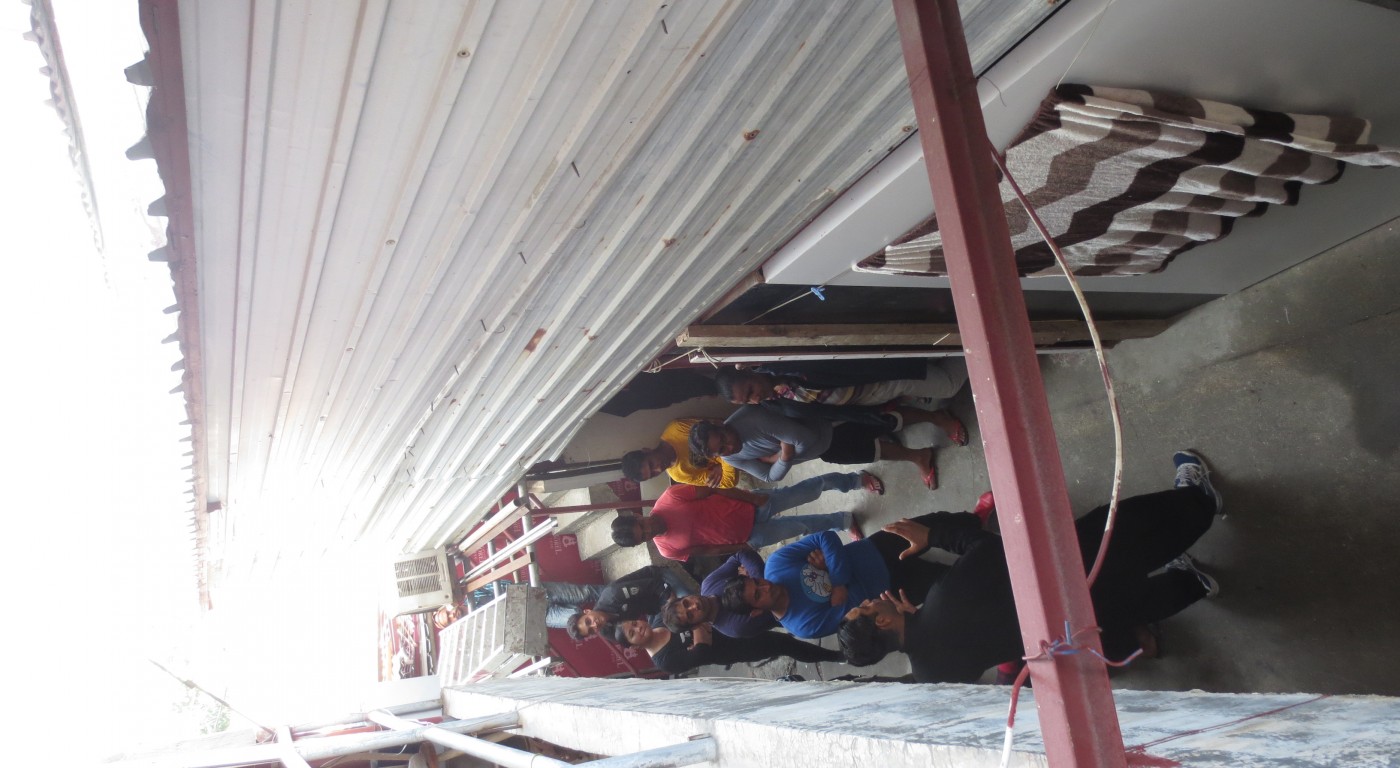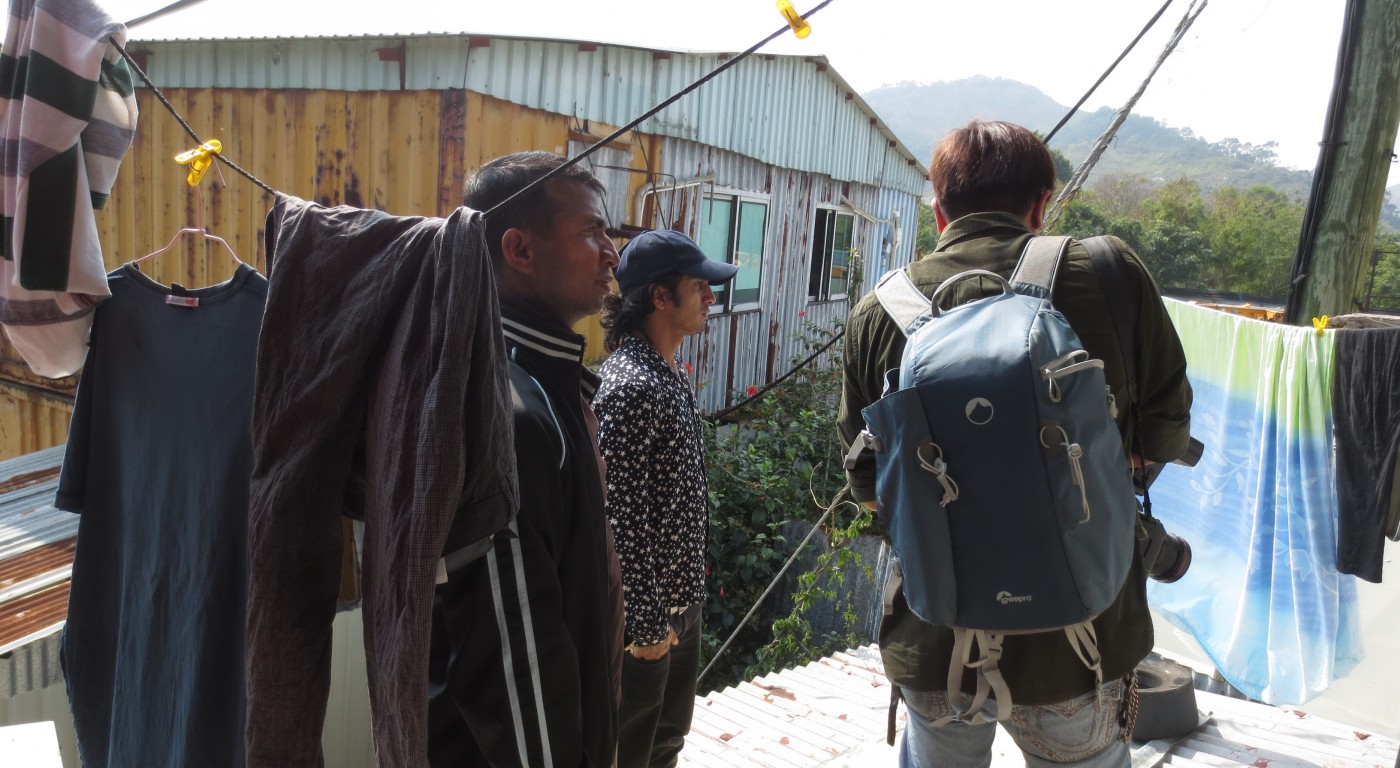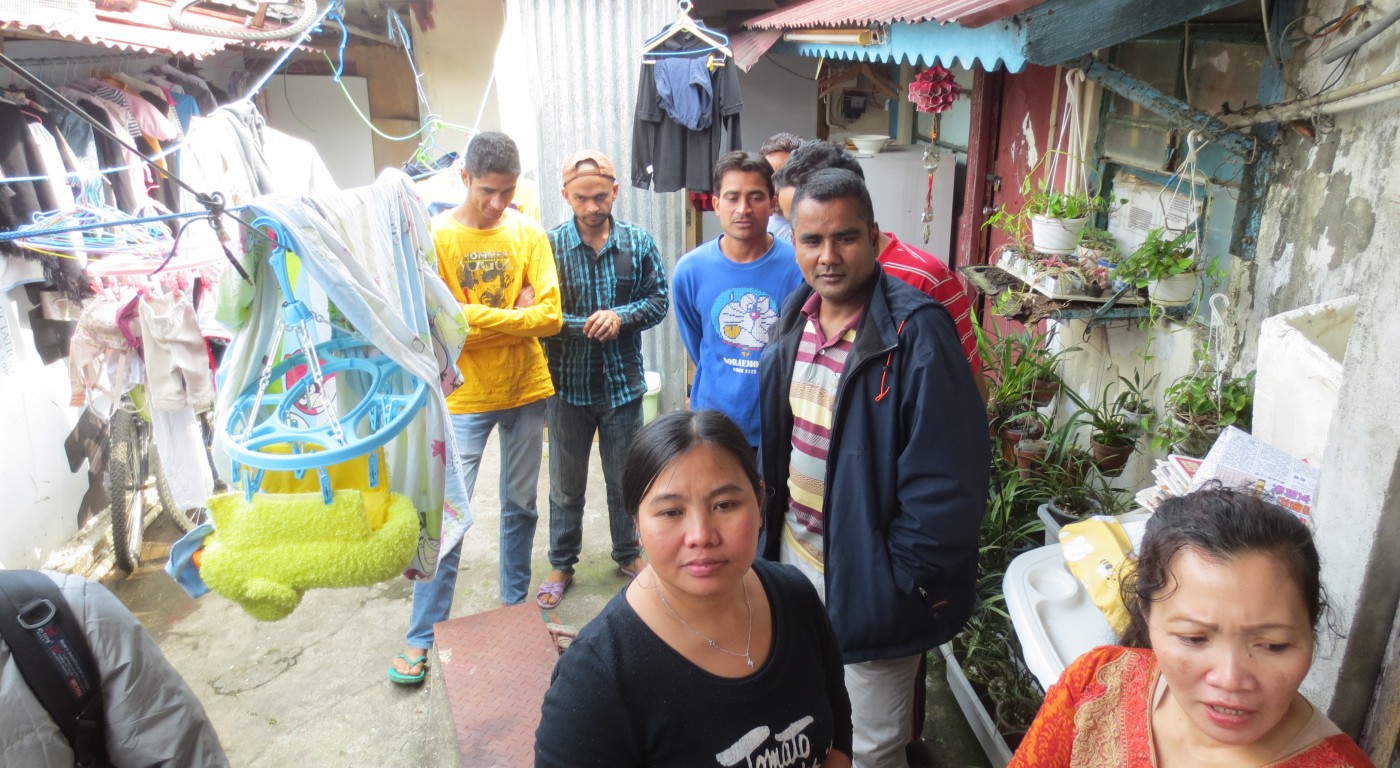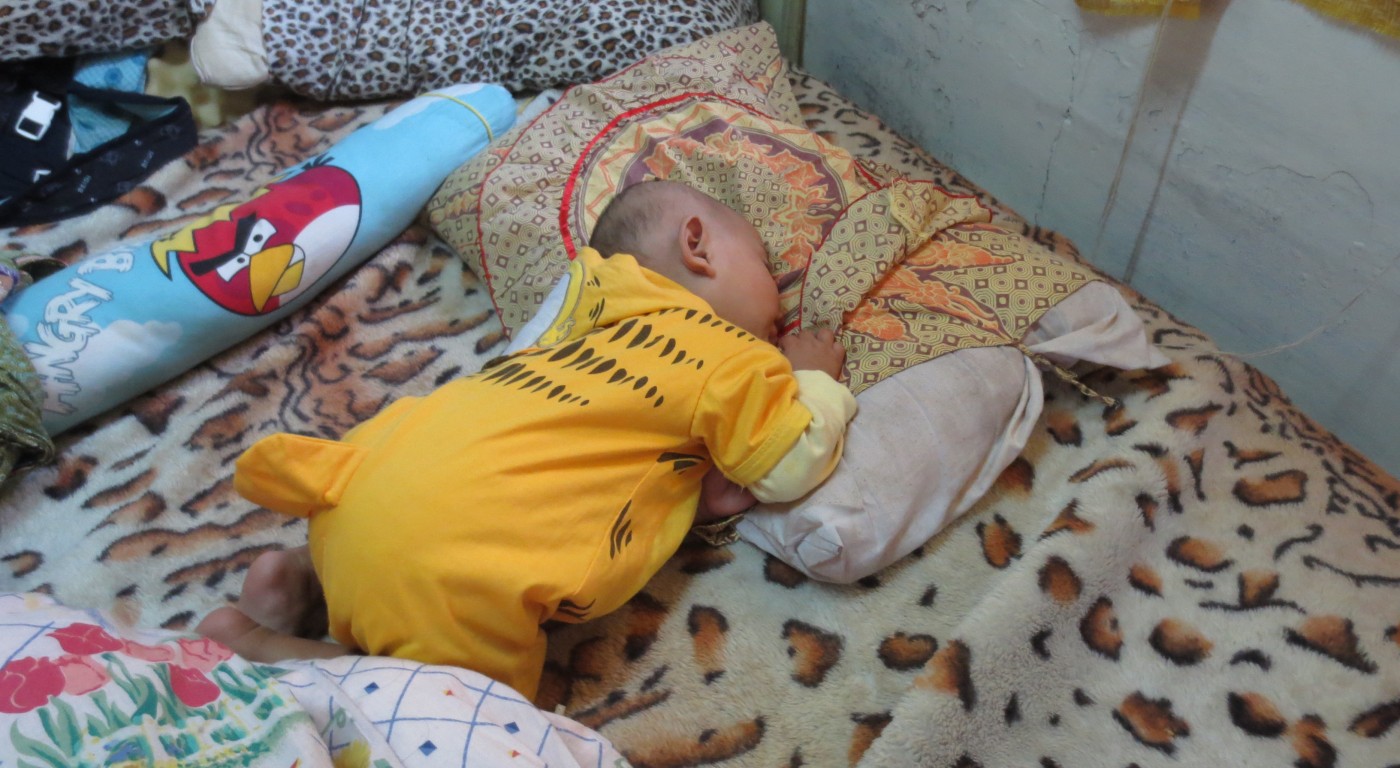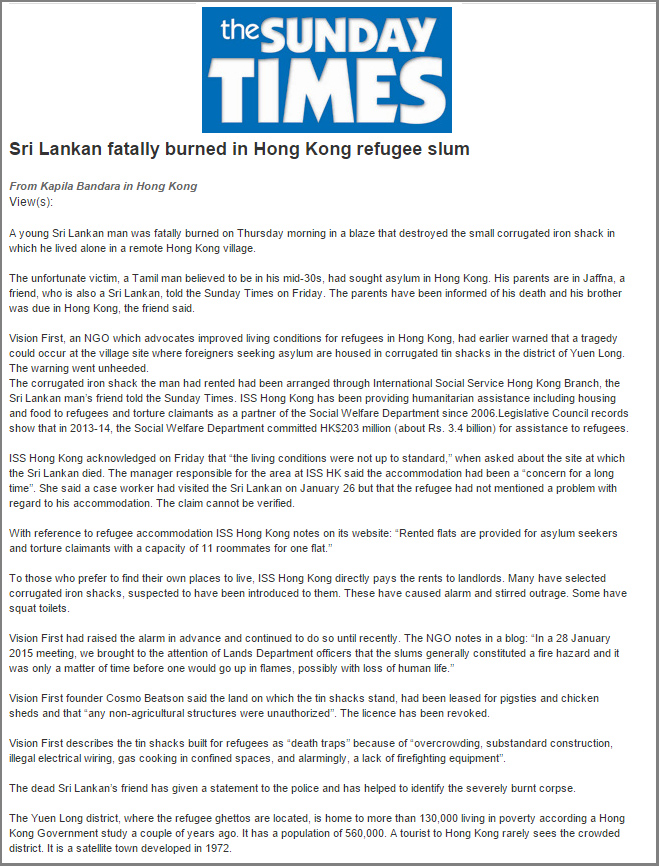Archive
ISS-HK proactively pushed homeless refugees to slums
Feb 9th, 2015 | Crime, Housing, Welfare | Comment
Let us put ourselves in the shoes of newly arrived homeless refugees, presumably desperate to get off the street and secure a roof over theirs and possibly their family’s head. Refugees are generally informed by either the authorities or their peers of the bleak life they are going to live in Hong Kong.
New-arrivals will eventually be directed to immigration authorities, if not first arrested, and upon release register at one of the SWD Integrated Family Centers around Hong Kong upon. After a means assessment and a 3 to 4 month wait, they are referred to ISS-HK, the government contractor for the provision of welfare to asylum seekers and refugees.
Newcomers learn of further restrictions on their livelihood: not only are they banned from working and will be jailed 15 to 22 months for doing so, but the rent assistance provided is arguably half of market prices for the cheapest subdivided rooms in the most rundown buildings. The present rate is 1500$, but it was 1200$ at the time ISS-HK circulated the document below.
It is at that time that refugees end up either following their peers wherever they live, to tap into similar cheap housing, or they are provided by their caseworker with addresses where they may find accommodation. In this case, one caseworker briefed a desperate homeless refugee on the rigid 1200$ rent ceiling (at the time offering neither security deposit or agency fee) and proactively encouraged him to contact the purported landlords of item 5 and item 6, which were duly marked for attention.
Several critical observations leap forward:
- The rooms in slums are often conveniently priced around the level of rent assistance;
- Other rooms seem to be priced far beyond the reach of destitute refugees;
- “No proof of ownership” evinces knowledge of unauthorized structures and land use;
- Item 6 is annotated with “6 to 7 rooms” that the caseworker keenly promoted;
- Item 6 is annotated with “house owner rent the land” indicative of a middleman/facilitator;
- Item 6 is annotated with “new address not in accommodation master list”;
(The authorities ought to forensically analyses such master lists) - Items 3, 4, 5, 6 are identifiable by Vision First as known slums in those areas;
- Items 4, 5 and 6 indicate “washrooms” which are known to be water buckets;
- Items 4, 5 and 6 indicate “kitchen”, sample photos of which are displayed here;
- Destitute homeless refugees are cunningly forced towards the slums!
Vision First researched extensively the conditions and dynamics that pushed refugees into the 69 slums we identified. We were told by several purported landlords that the joint enterprise started with a connection at ISS-HK, details will be produced in due course. We believe that the documents with the contact numbers of 8 slum lords and the one below with the details of rooms at 4 slums, manifestly give the lie to any claim that ISS-HK had no part in a joint enterprise to settle refugees in slums. Some observers might go as far as calling these smoking guns.
Besides, whether it is admitted or not, nothing changes the fact that these slums are unauthorized structures never listed by the Lands Department for human habitation and as such should be promptly dismantled when those responsible wake up from a deep slumber.
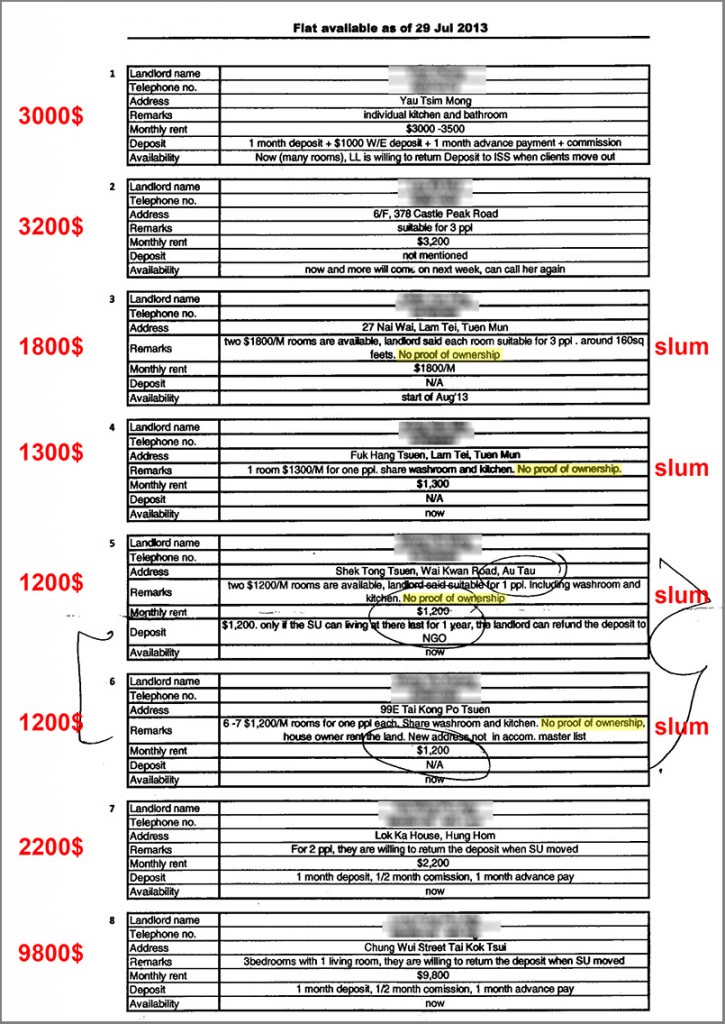
List of slum lords published by ISS-HK and distributed to homeless refugees
Feb 9th, 2015 | Crime, Housing, Welfare | Comment
ISS-HK published and distributed to refugees a document that provided slum lords’ names, mobile numbers and locations, with specific directions for public transport to arrive at such slums. This document was issued by ISS-HK and provided to refugees with instructions to reach Kam Sheung Road MTR station, board bus 64K in the direction of Tai Po and get off at Kam Tsin Wai bus stop (3rd stop). At this location there are no houses along the tree lined road. There are farms, car traders, scrap yards and, most importantly, the Slum on Two Storeys (the site of the deadly fire; 3 minute walk from the bus stop) and the Slum with The Price List (8 minute walk from that bus stop). Vision First has collected several testimonies from ISS-HK case workers directing service users to these slums. How does this evidence correlate with ISS-HK statement that refugees want to live in slums?
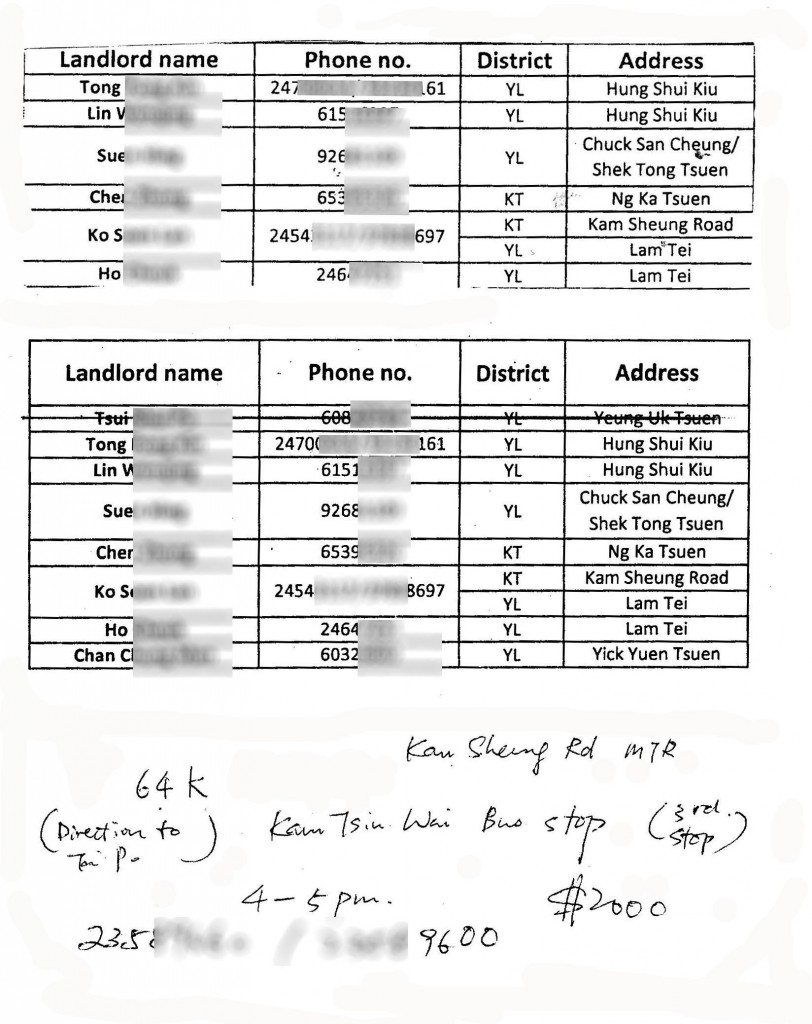
Refugee Union Statement following slum fire
Feb 6th, 2015 | Crime, Housing, Refugee Community, Welfare | Comment
Refugee death in slum fire unveils a conspiracy
Feb 5th, 2015 | Crime, Housing, VF Report, Welfare | Comment
Vision First reports with great consternation that, between August 2013 and January 2015, the Social Welfare Department’s (SWD) contractor and agent, International Social Service (ISS-HK), increased collaboration with the flagrantly exploitative and reckless landlord of lot 451 (Demarcation District 106).
It appears to us that ISS-HK is fond of the false justification, which has been consequentially echoed in the media, that refugees choose to live in slums or ghettos and refuse to relocate to better accommodation because they prefer to live with their friends. This position needs to be carefully analyzed.
On 19 May 2013, the news of the existence of refugee slums in Hong Kong broke with the South China Morning Post article “Bangladeshi refugees’ unliveable conditions appalls activists”. It will soon be two years since then, over which time the Hong Kong authorities have done little or nothing to clamp down on what apparently amounts to a joint enterprise, between disburser (SWD and ISS-HK) and the landlords recipient of taxpayer money, to direct and settle refugees in openly dangerous and life-threatening agriculture and industrial infrastructures, in flagrant disregard and breach of the laws, rules and regulations governing zoning, authorized structures and fire safety.
Reliable evidence will be presented in due course to the relevant government departments to expose a business model that developed, prospered and self-reinforced, whereby the government and its agents allowed profit-generating income streams for slum lords, by way of exploiting the use of unauthorized structures erected to facilitate caseworkers’ task to settle homeless refugees with no negotiating power when ISS-HK imposed unrealistic and unreasonable rental budget limits.
Vision First contends that any person who has participated in the settling of refugees in slums up to and including the present day, should have known or have constructive knowledge of the dangerous conditions that have resulted in accidents and a recent fatality. Joint enterprise or conspiracy is where one or more persons immediately cause the actus reus of an offense, while others participate in it with the agreement to reach a specific objective, in this case the marginalization of refugees in slums.
If the joint enterprise or conspiracy is to settle refugees in slums, then it matters not which person in the conspiracy and/or joint enterprise is a SWD or ISS-HK caseworker, a real estate agent, a caretaker, a middleman or a registered owner of the slum. All parties involved are culpable.
The continued activities of SWD, ISS-HK, real estate agents, landlords and respective agents amounts to what is arguably continued criminality, while the government’s failure to carry out its legal duties can amount to misfeasance or malfeasance of public officials.
The following photos display the dangerous unauthorized structures erected between 2013 and 2015 by a landlord hellbent on profiting from rent paid by ISS-HK. It should be noted that all the refugees interviewed in this compound were on Immigration recognizance and registered service users of ISS-HK, who disbursed monthly rent assistance to this landlord (estimated at over 600,000$ yearly) presumably after carrying out due diligence with regard to accommodation and documentation.
Hazardous structures endanger life in the slum on two storeys
Feb 4th, 2015 | Crime, Housing, VF Report, Welfare | Comment
The death of refugee Sivarajah Sivatharan, known as Lucy, is drawing heightened attention to a slum where SWD contractor International Social Service (“ISS-HK”) settled him in collaboration with a purported landlord whose reprehensible exploitation of refugees must end.
Lucky was a Tamil who fled the war in Sri Lanka for the safety of Hong Kong. He was registered by ISS-HK for provision of welfare in September 2008. It is unknown when ISS-HK approved the unauthorized structure in which he met a burning death on 29 January 2015, though it is reported that he lived there for three years and the oldest signed contract we obtained is dated 23 August 2013.
Over 30 refugees are presently settled in dangerous illegal structures erected on Lot 451 (rear portion) in Demarcation District 106 in the village of Ng Ka near Kam Tin. This repugnant arrangement degenerated markedly since our first report in November 2013 on “The Slum On Two Storeys”.
Documents obtained by Vision First suggest that the landlord bought this lot in late 2001 for 580,000$ after previous pig and chicken farming licenses were revoked. Around 2010 the landlord entered into a questionable, but highly lucrative arrangement with ISS-HK and, according to our calculations, earned more than 600,000$ a year in refugee rent assistance paid from the government purse.
The smug and arrogant landlord allegedly informed the Ng Ka Tsuen community chairman that he will rebuild the three burnt huts and rent them again. It is unclear whether ISS-HK will be in a position to continue its dubious relationship with this slum lord, let alone approve new shacks built over the site of the fatal accident after relevant authorities intervene.
Following the fire that took the life of Lucky, the refugees living in this slum raised a litany of grievances about the dangerous, unsanitary and inhumane conditions they endure:
- Dangerous overcrowding since 2010 pushed up occupancy from 20 to 35 refugees;
- The landlord displays good rooms to caseworkers, but lodges refugees in bad ones;
- Additional rooms were erected hazardously in empty spaces to maximize rental profit;
- Sanitary conditions are appalling with plastic bucket for showers;
- Certain rooms are little more than coffin-size cubicles on stilts with no standing space;
- Unbeknownst to ISS-HK, the landlord allocates more than one refugee per room;
- One unit with two small rooms is rented to 4 refugees forced to share 2 beds for 6000$;
- One unit with two small rooms is rented to 5 refugees for 6000$;
- Dangerous gas cylinder for cooking inside cubicle rooms with no windows;
- Appalling sanitary conditions with plastic buckets for showers;
- The landlord provided this heating devise for tenants to warm water to shower;
- Unsafe electrical works are concealed from view in closets;
- Obstructed, narrow passages would ensure a death zone in a fire at night;
- Overhead storage of flammable material present a serious fire hazard;
- Highly combustible foam-boards and plastic covers partition all cubicles;
- Lack of fire-fighting equipment and fire exits from the second storey;
- The landlord charges each refugee about 500$ on top of the 1500$ rent assistance;
- The landlord charges each refugee two months deposit on top of what ISS pays;
- The landlord overcharges refugees for electricity use using dodgy meters;
- The landlord refuses to issue receipts for the cash he collects from refugees.
Refugees raise doubts about ISS caseworkers systemically approving countless tenancy agreements for such apparent unauthorized structures. Especially when refugees report they are rarely: (i) visited in the rooms; (ii) asked to supply proof of ownership as required by SWD; (iii) asked how many of them are allocated to each cubicle. (iv) this obviously poses challenges to confirm the existence of basic functional facilities for cooking and washing and the overall safety of the cubicles.
Vision First urges relevant authorities, including the Social Welfare Department and Lands Department, to urgently clamp down on this dangerous slum and provide refugee tenants with the means to effectively compete in the rental market without having to resort to renting a room in another slum.
The least owed dearly departed Lucky is that his friends do not fall from the pan into the fire.
I gave birth to a son from another man
Feb 3rd, 2015 | Crime, Immigration, Personal Experiences | Comment
Good evening Vision First. I got my new Immigration paper and I have to report with my son every two weeks at CIC detention. My officer said he will proceed the papers for the Education Bureau for my son’s school. Thank you so much for giving us strength to insist on our rights and to have hope to fight every day. We owe you a lot.
I am one of hundreds of failed domestic workers who cannot return to their country because they have big problems. We are refugees because we must stay in Hong Kong to save our lives. I come from a village in the Philippines where I was married and had a child. When I had problems with my husband I came to work in Hong Kong.
My husband will never forgive that I separated from him and I give birth to a child from another man. Nobody can change his mind to take revenge on me. His mother is very close friend to council district and municipal authority members. He and his brother are working for the municipal government. His position is TASK FORCE and they have big connection with our mayor.
They are doing violence to their enemies because they have power. They always deny they are doing this, but they do it again and again. In the Philippines it’s big danger to be a witness and hard to ask the police to help if nothing bad happens first. Also it is hard to hide in another place, because every village report new people and it is hard to hide from my husband’s friends.
He will know that I am somewhere. I must protect my son all the time because he wants to kill us both. My country is not safe and not easy to ask to anyone for help. I am scared to face him and I am more scared what will happen to me and my son’s life.
Since I married him I feel not happy for his being strict and jealous. But I try to work it out with my family. When I gave birth to my first child, I was wishing he will change, but no, he get worse. One night he took a knife and kept stabbing my pillow and searching my house. And then he bought a gun. When he knew I am seeking help from my family, he tell them he never respect them and kept making trouble with them.
One day he tried to rebuke my niece until they hit each other and he got hurt. He bring that problem to the court and until now that problem is not closed, because we don’t have lawyer so we just using the court lawyer. That moment I decided to separate from him slowly. But I was scared because in everyday of my life in the Philippines he kept on following and trapping me everywhere. Every time I kept screaming, even in my work place where he disturb my boss.
But one night that I will never forget he stopped me in the street corner. He was there waiting for me and he pull me … I try to be brave, but when I see his gun pointed at me … I got hurt. I knew that he can kill me anytime. I complained many times to the police and the council but they could not do anything.
That was three years ago when I decided to work abroad to escape from him. But he took my child from my parents and threatened me, so I have no choice but to send him some money. He took opportunity again to disturb me and he took all the details of where I am working and even make me frightened in Hong Kong. He took my son and never let me see him again.
In Hong Kong I got three employers but felt no good with any employer, it’s because I still feel fear and anger. When I got boyfriend and had my second son, it seemed to change my feelings. I told my family what happened and suddenly my husband went to their house and kept shouting that he know all about me even my son. He is still angry and still not stop to search for me and my son. He told my parents he has a photo of my son and he will kill us both. He still wants to take revenge so I am scared.
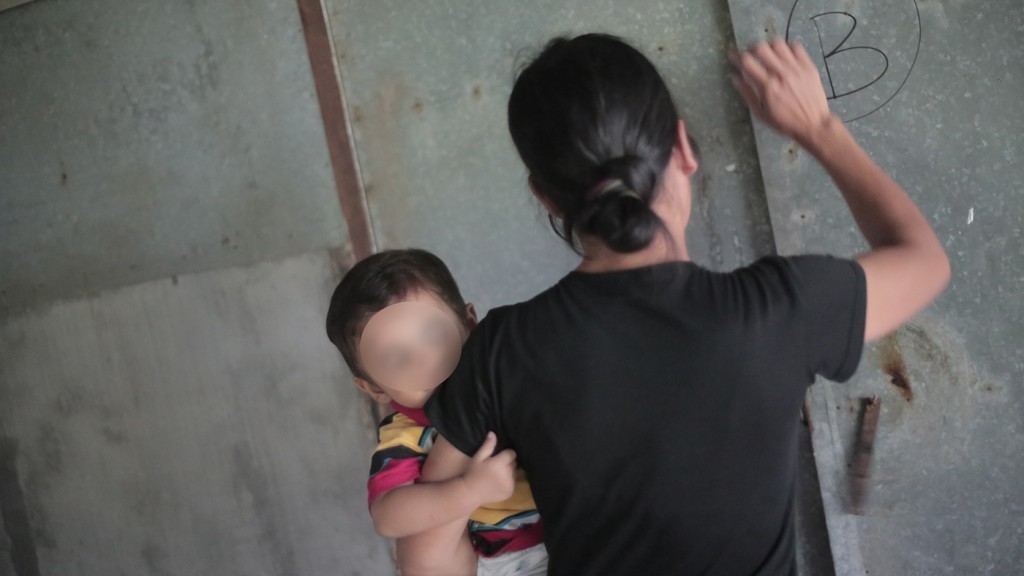
Sentencing guidelines criminalize refugees
Feb 2nd, 2015 | Crime, Food, Housing, Legal, Welfare | Comment
A South Asian women walked out of a supermarket without paying for several items worth less than 200$ in her recycling bag. Two shop attendants readily intercepted her outside and accused her of shoplifting. The police were called in to handle the matter and she was arrested. Several months later in a magistracy court, the 54 year old woman was convicted of theft and sentenced to 6 months jail.
The magistrate was convinced there was criminal intention (mens rea) by the plain facts that she had removed items from shelves, placed them in a bag and walked by cashiers without paying. CCTV recorded such actions without evidence of suspicious behaviour, such as acting furtively, glancing around before stealing, resisting interception and admitting guilt to be ‘given a second chance’.
On 29 January 2015 barrister Mark Sutherland, a non-executive director of Vision First, made submissions in favour of the appellant in the high court. He underlined the mental state of a woman who suffered persecution before seeking refuge in Hong Kong in 2004. Such traumatic experiences resulted in PTSD that worsened severely as she felt an outcast, immiserated and marginalized refugee for over a decade. The prohibition from working denied her a dignified life.
A report by clinical psychologist Dr. Parul Batra, also a non-executive director of Vision First, described the severe depression and mental disorder of a disoriented and confused lady disconnected from society who had never received any psychological support. The court heard that the appellant suffered from memory loss, flashbacks, trouble concentrating and ‘non-insane automatism’, i.e. performing acts without the conscious control of the mind.
In addition, while shopping the lady had received a distressing phone call informing her that her husband, also a refugee in Hong Kong, had suffered an accident and had been admitted to hospital. More doubts where raised about her criminal intention by the fact that when she was stopped she calmly stated, “I forgot to pay” without resistance, justification or other behaviour typical of thefts.
Mr. Sutherland objected to the lower court magistrate having drawn adverse inferences from the woman having entered HK as a domestic helper before seeking asylum. The court was reminded that every asylum seeker must either enter illegally or overstay a visa before raising a claim. The defense reiterated that while asylum claims are pending assessment, and until all legal remedies are fully exhausted, nobody is allowed to make any comments on why and how claimants seek asylum.
In the high court, the Honourable Judge Tallentire confirmed the conviction, but reduced the previous sentence from six to three months. It is regrettable that lower court magistrates put little weight on psychological reports and show no sympathy for asylum seekers painted with one brush, often meting out decontextualized sentences as per guidelines that only dehumanize offenders. Culpability aside, a six month sentence recalls the banning to Australia of those guilty of stealing bread in 19th century England. If only such custom were maintained today!
On a general note, it is important to have regard of the matters that refugees analyze: (a) shoplifting is punished by a fine or a few months jail; (b) selling small amounts of drugs is punished by 6 to 8 months jail; (c) common theft is punished by 6 to 8 months jail; (d) working is punished by 15 months jail for pleading guilty and 22 months for pleading not guilty. Could sentencing guidelines be blamed for criminalizing destitute refugees denied viable pathways to live in dignity?
